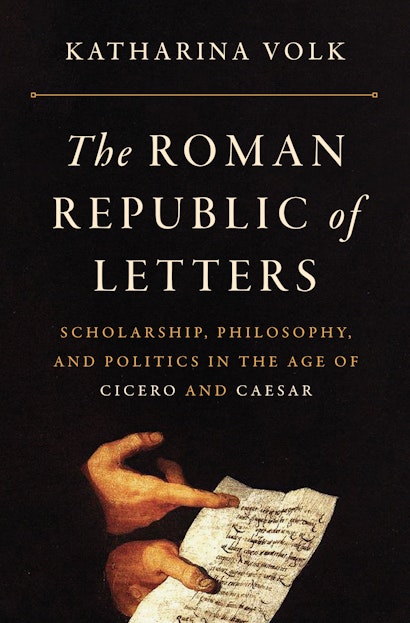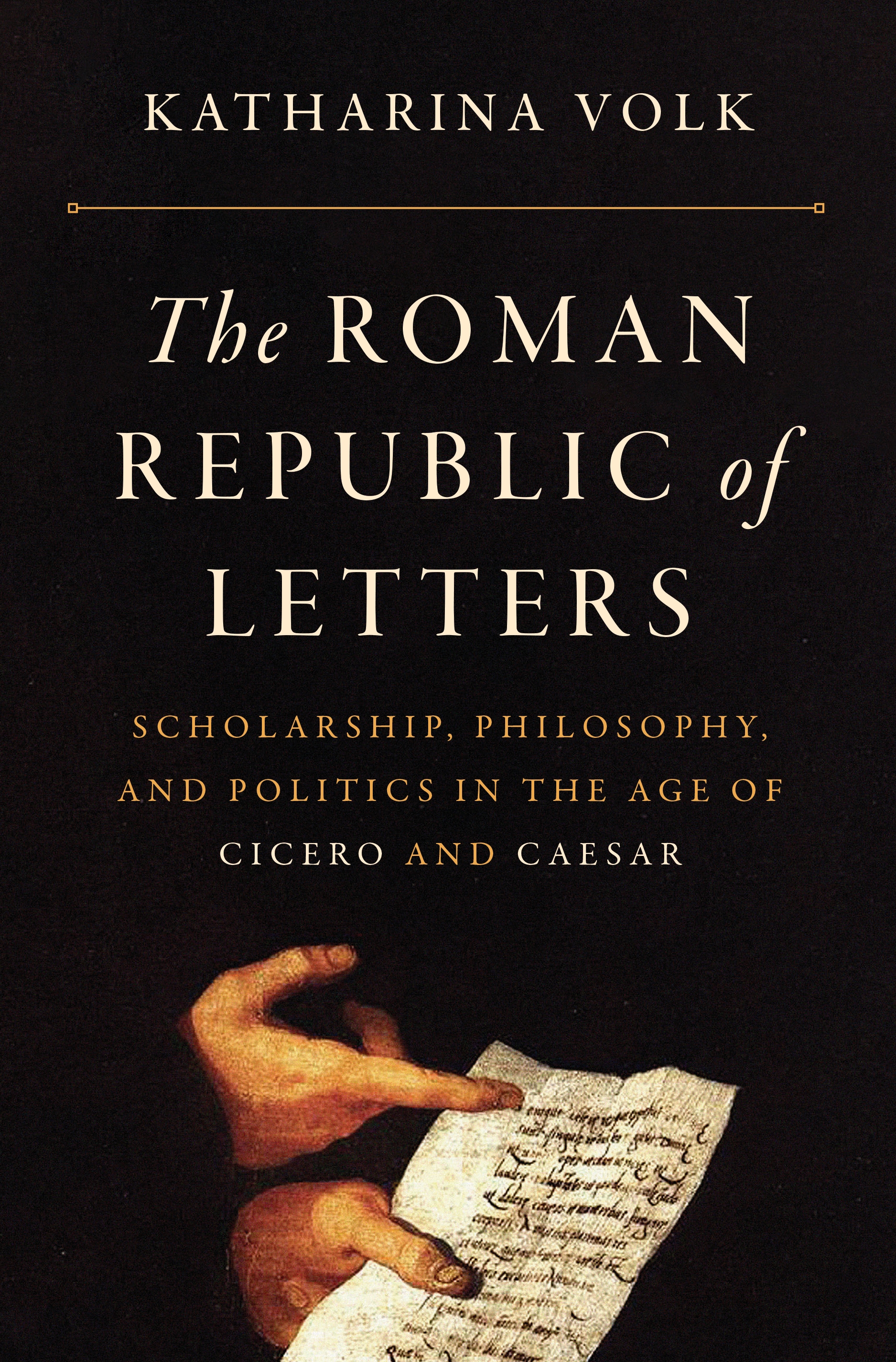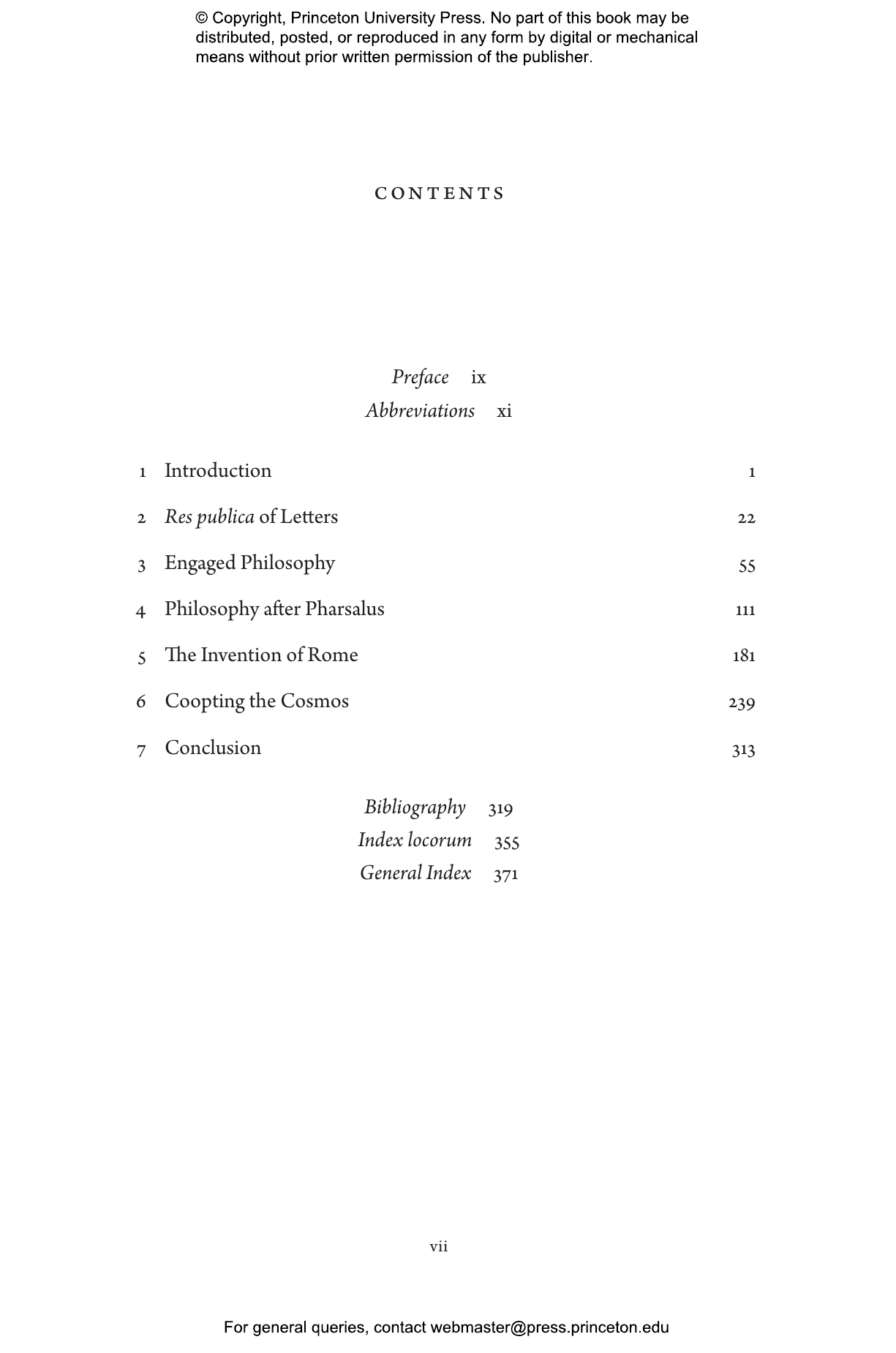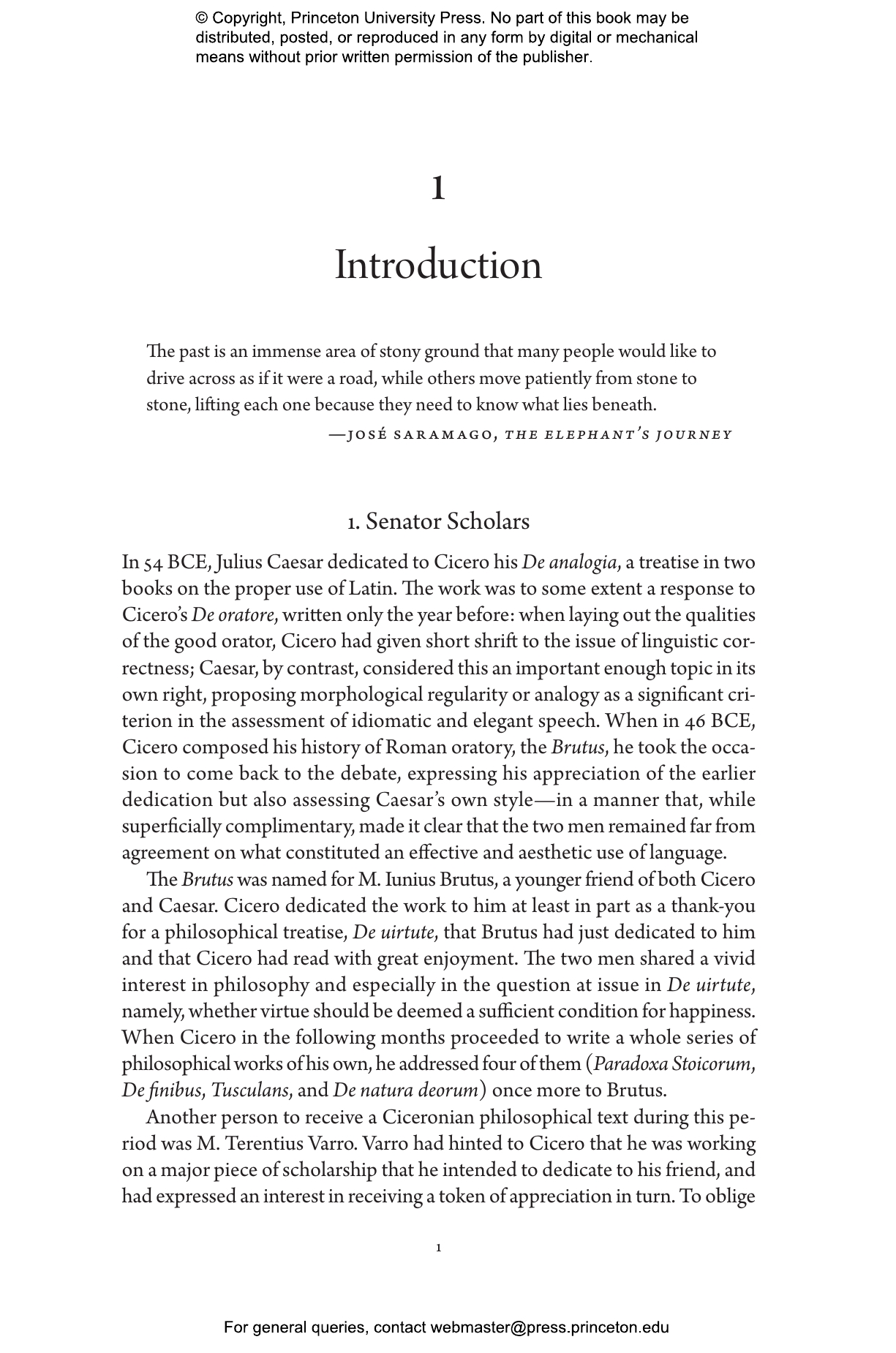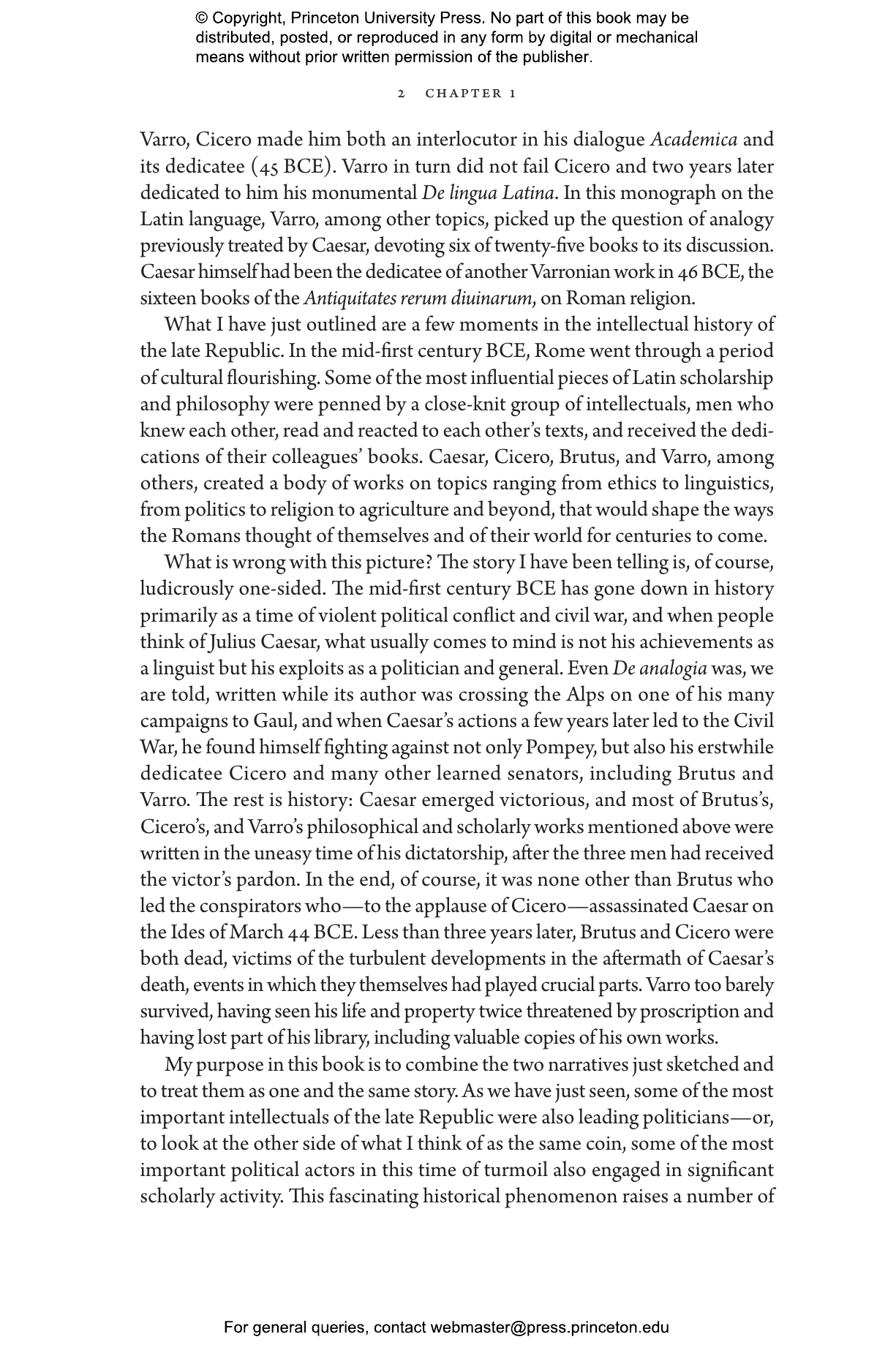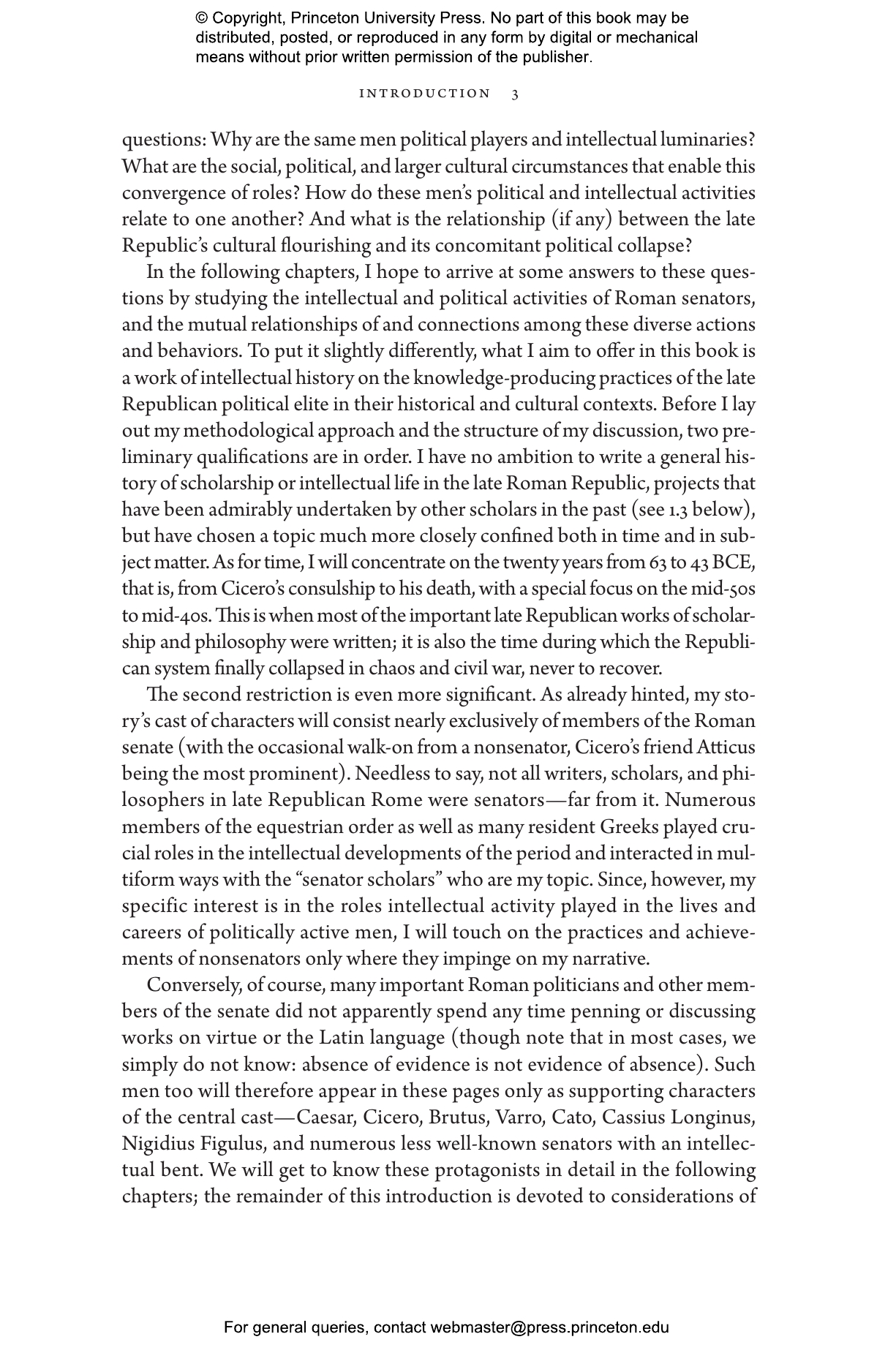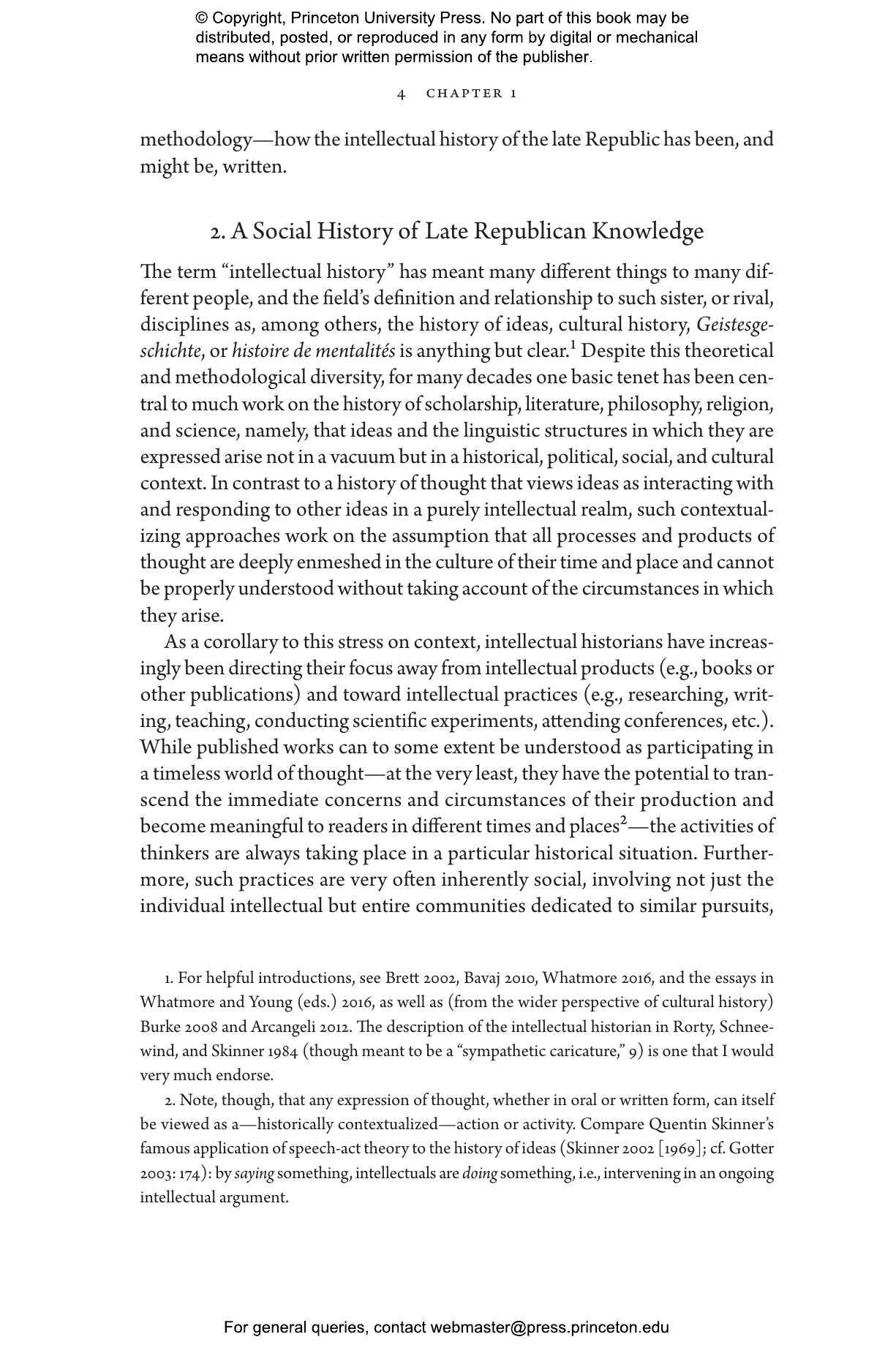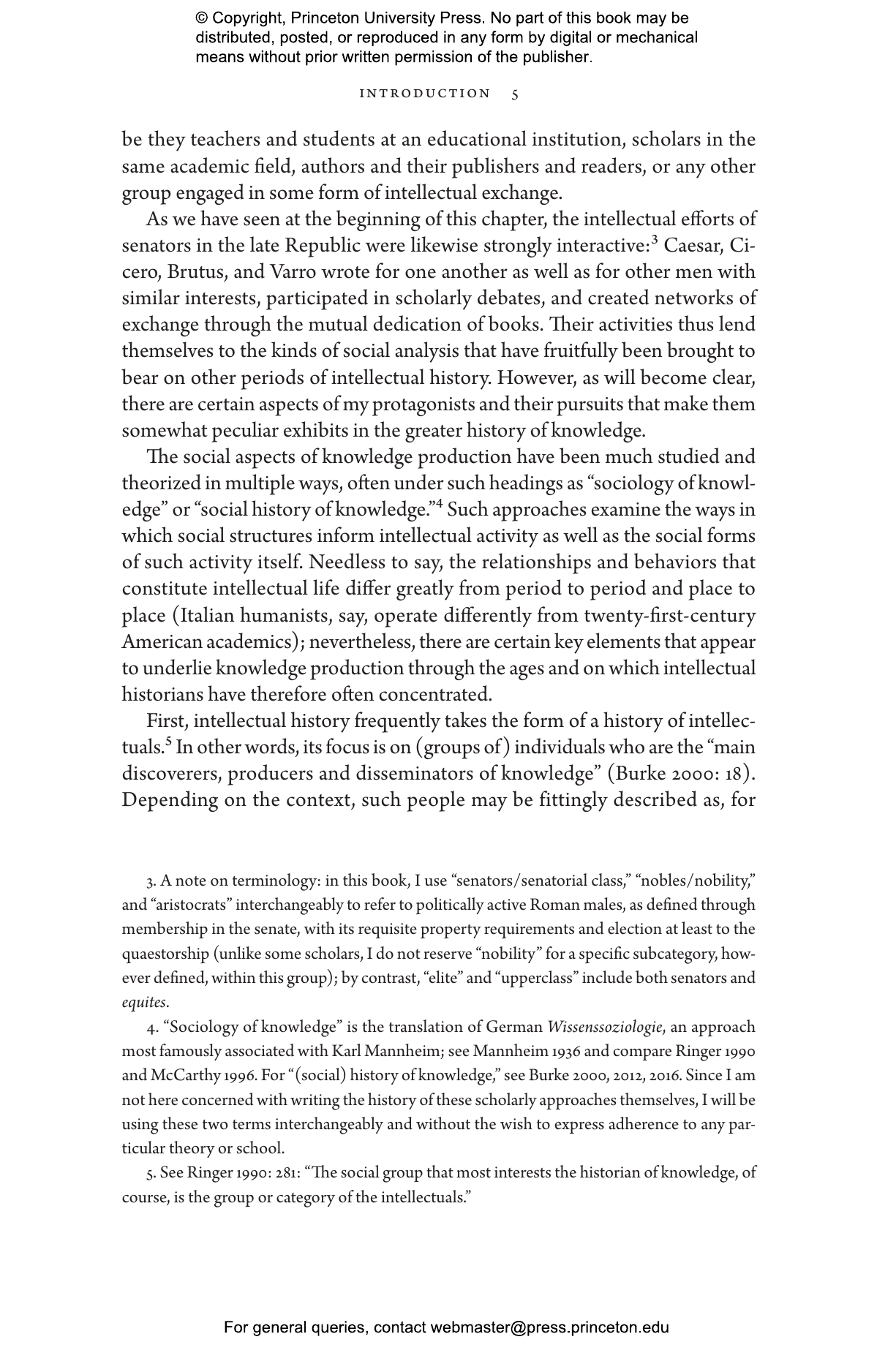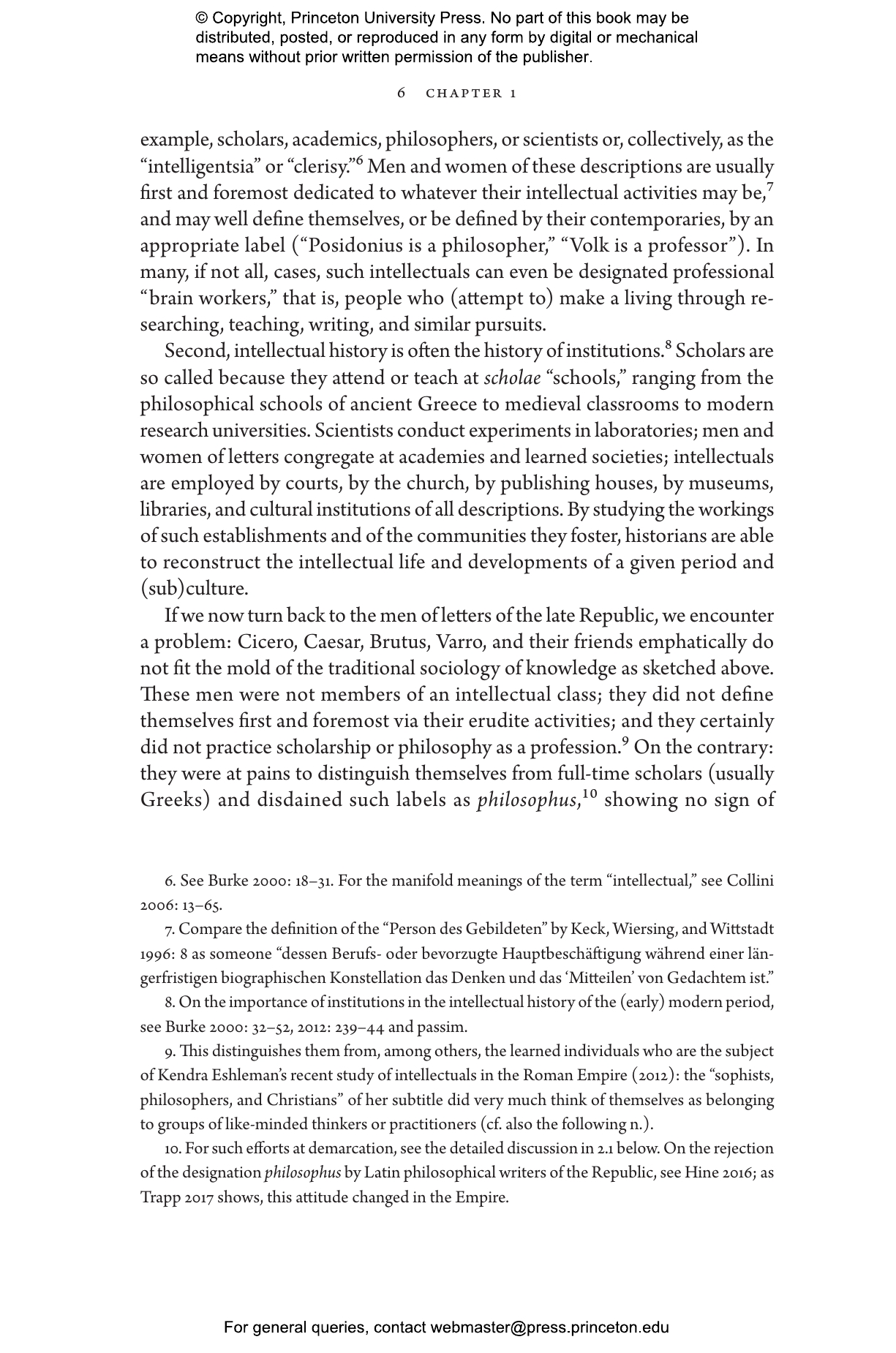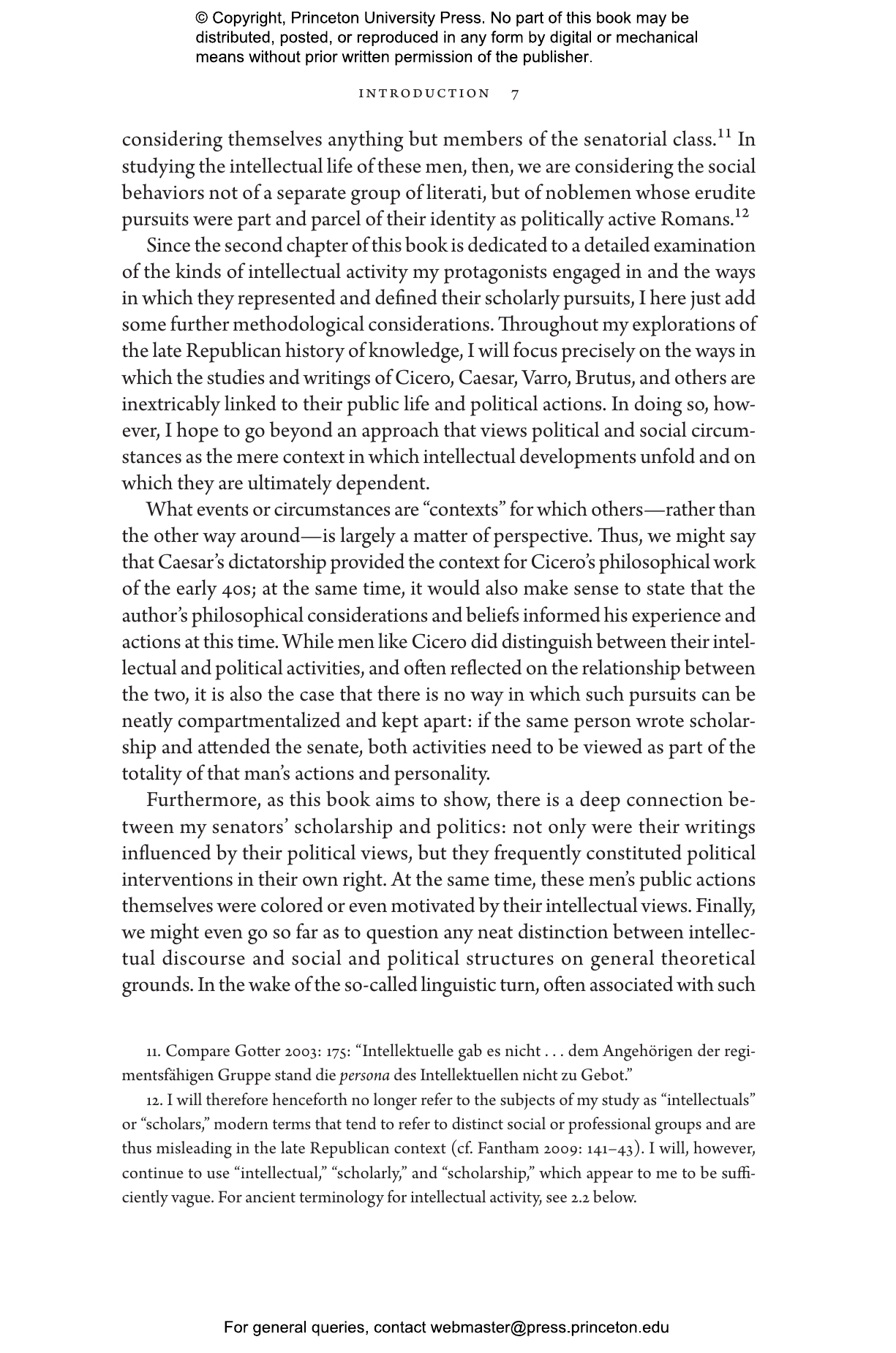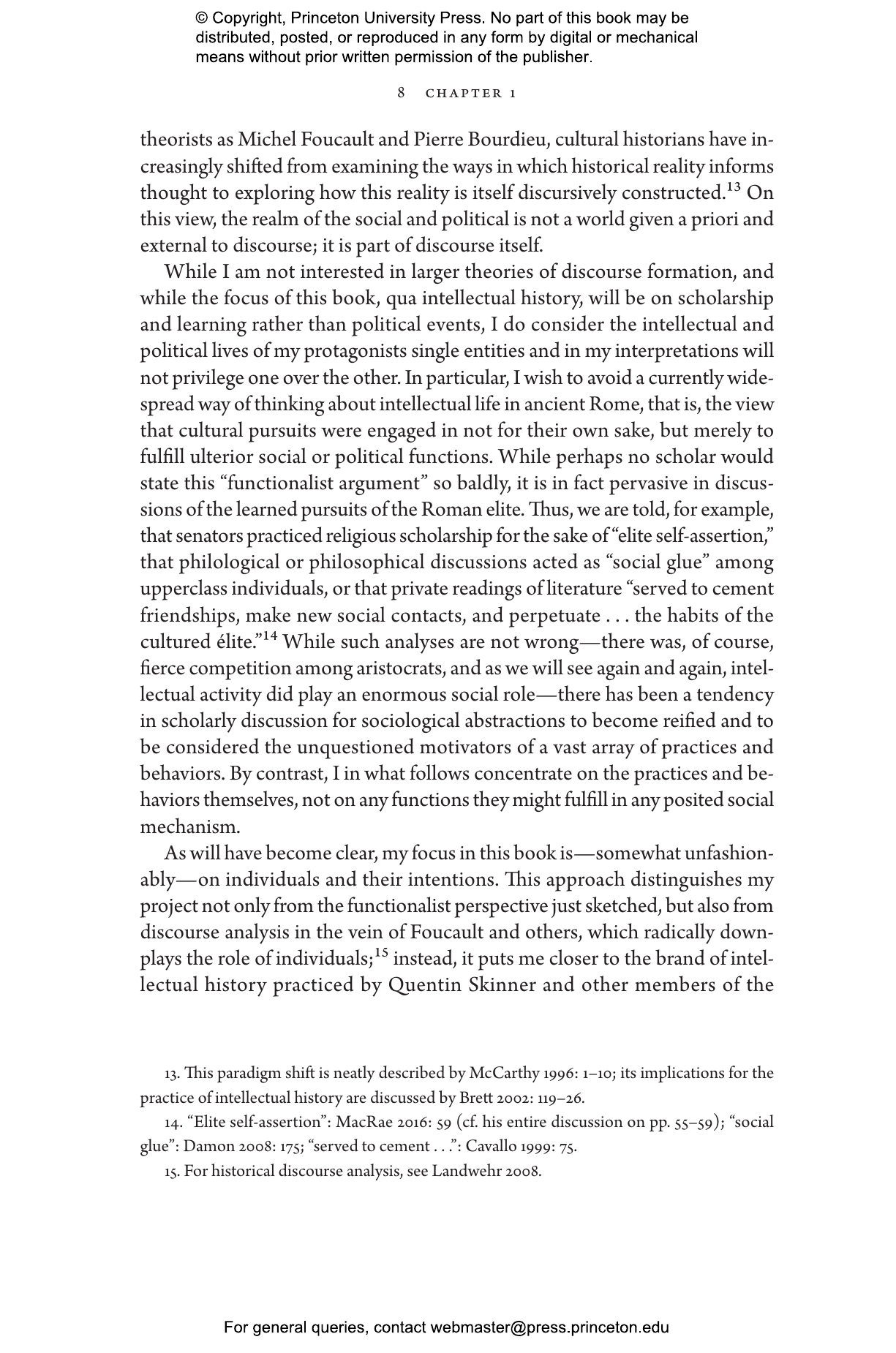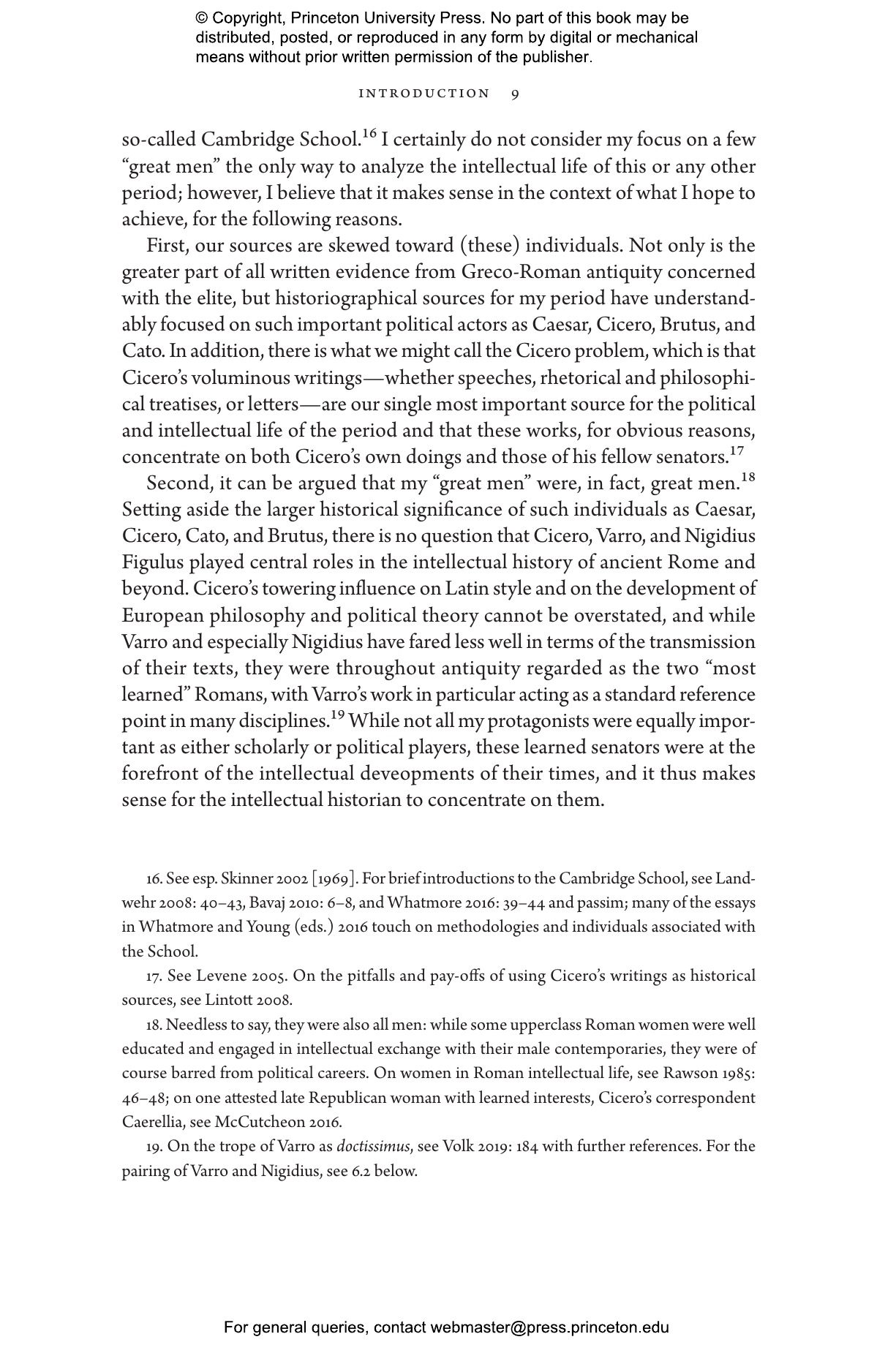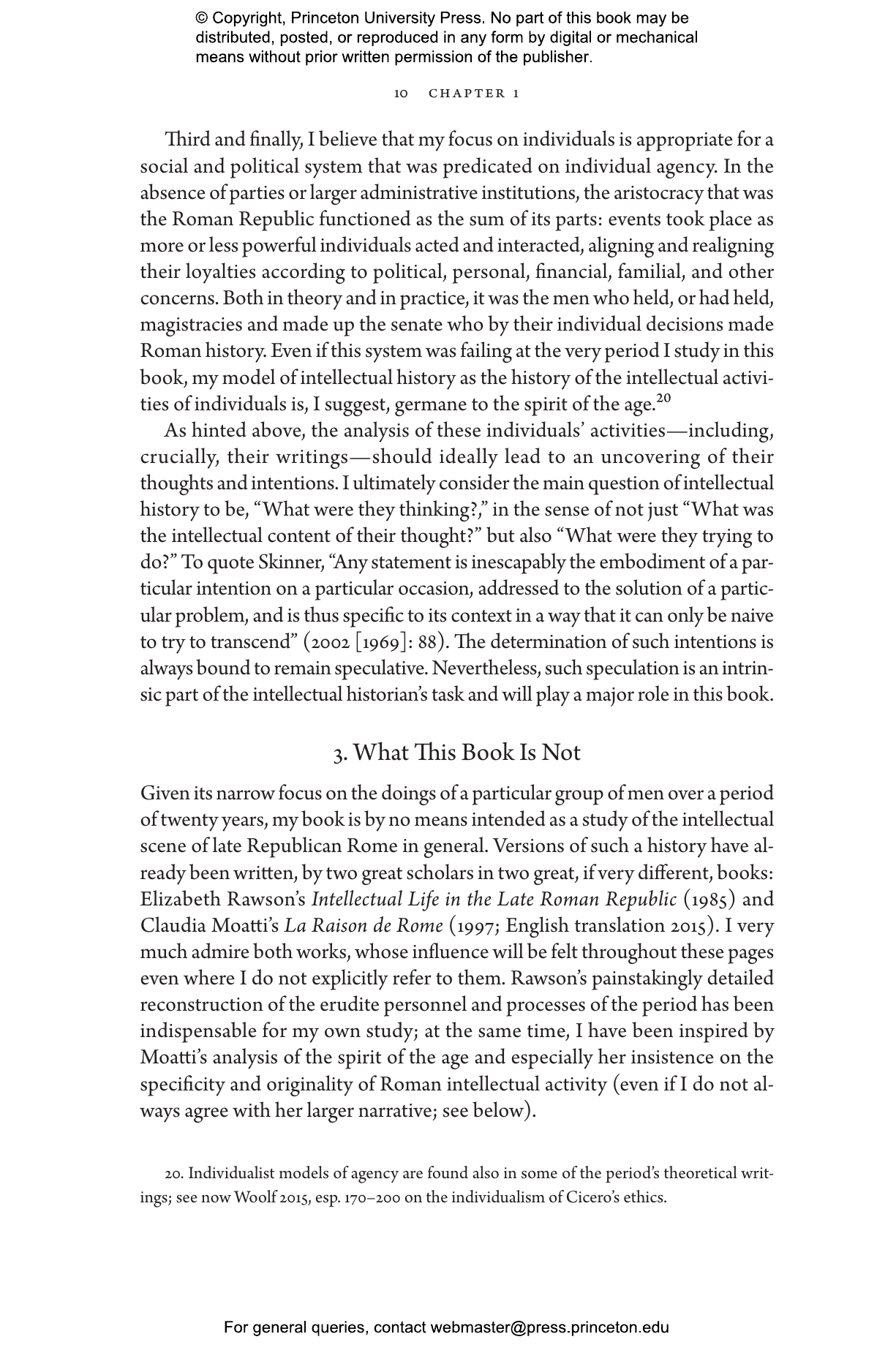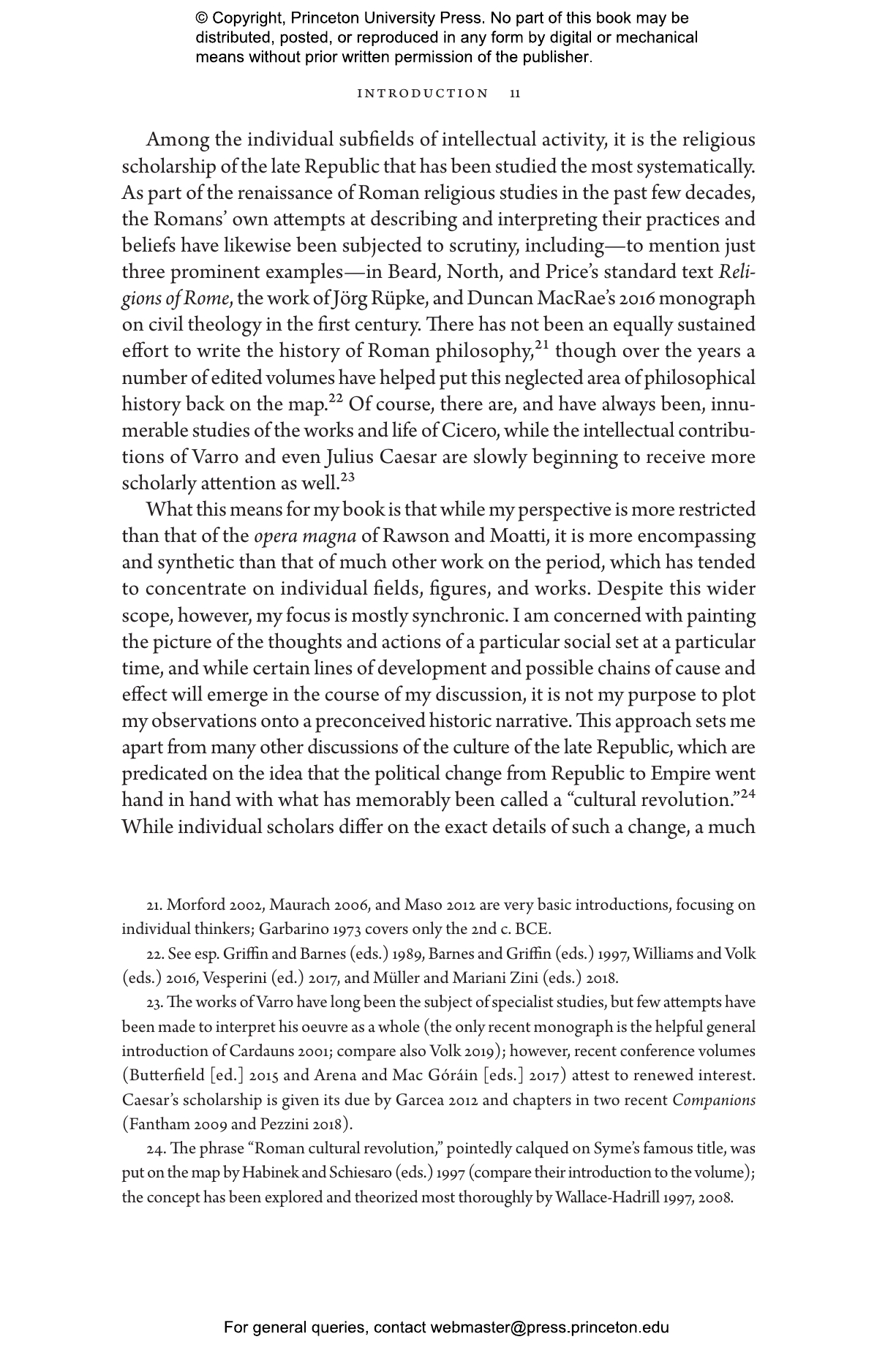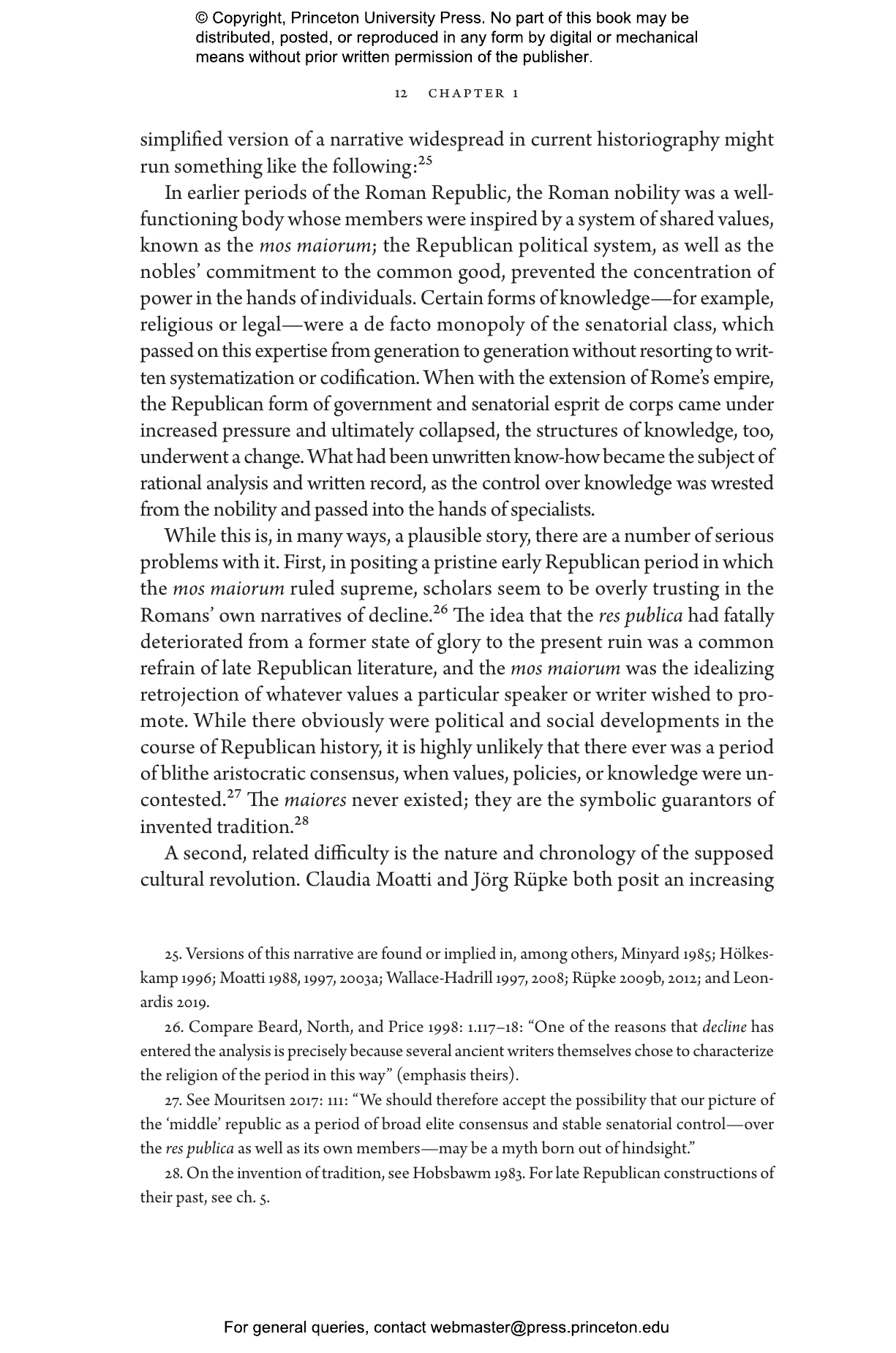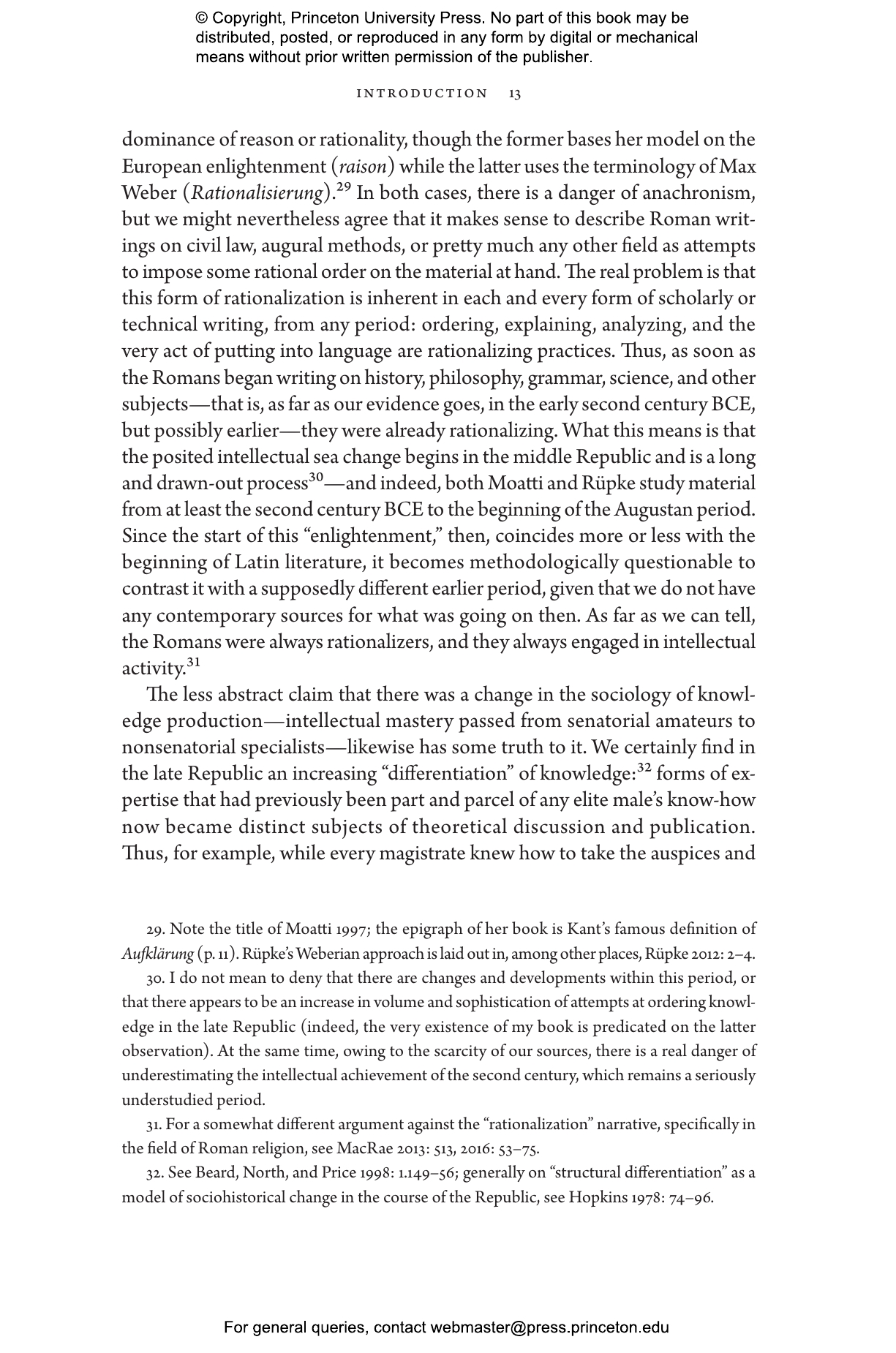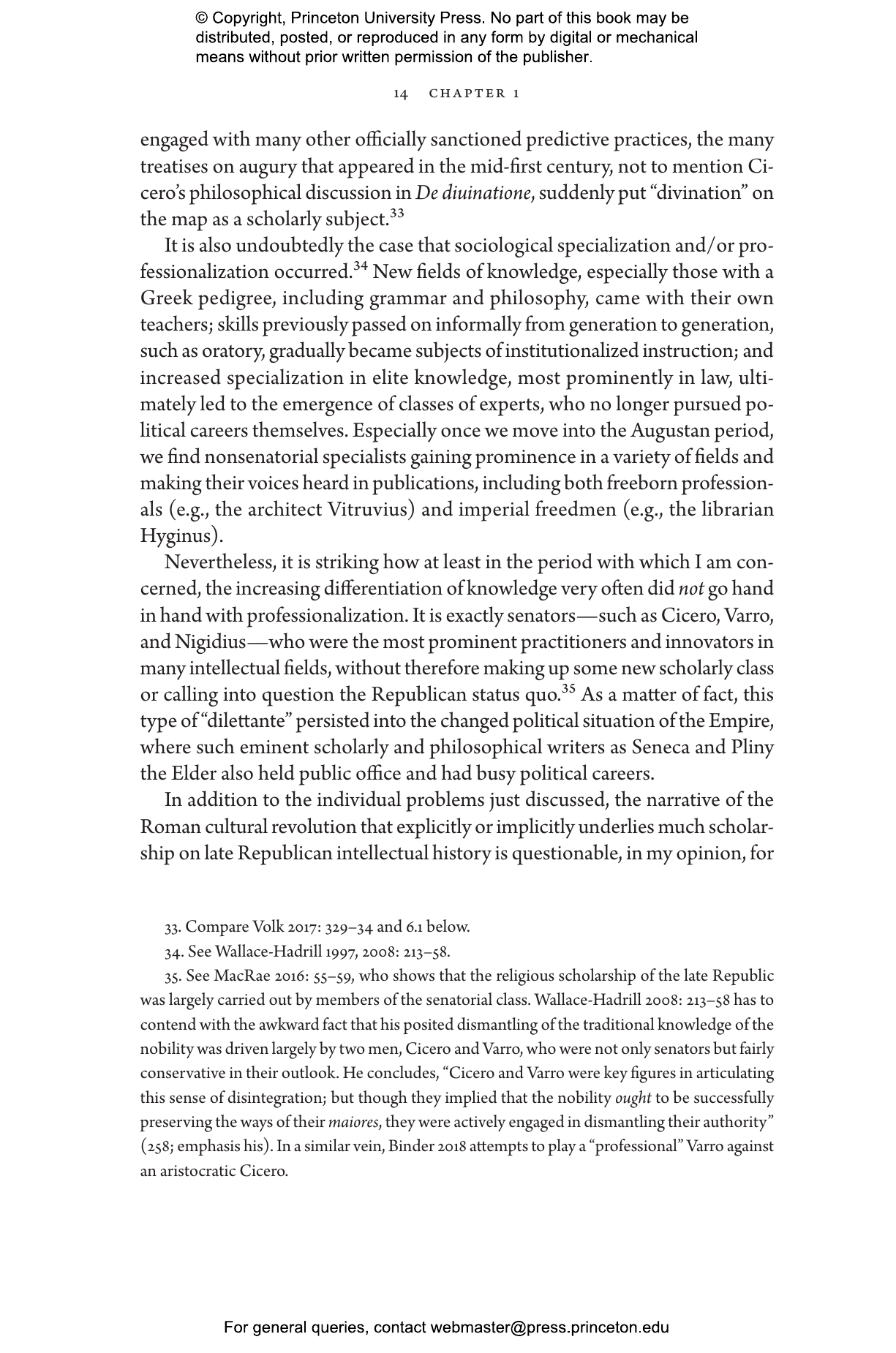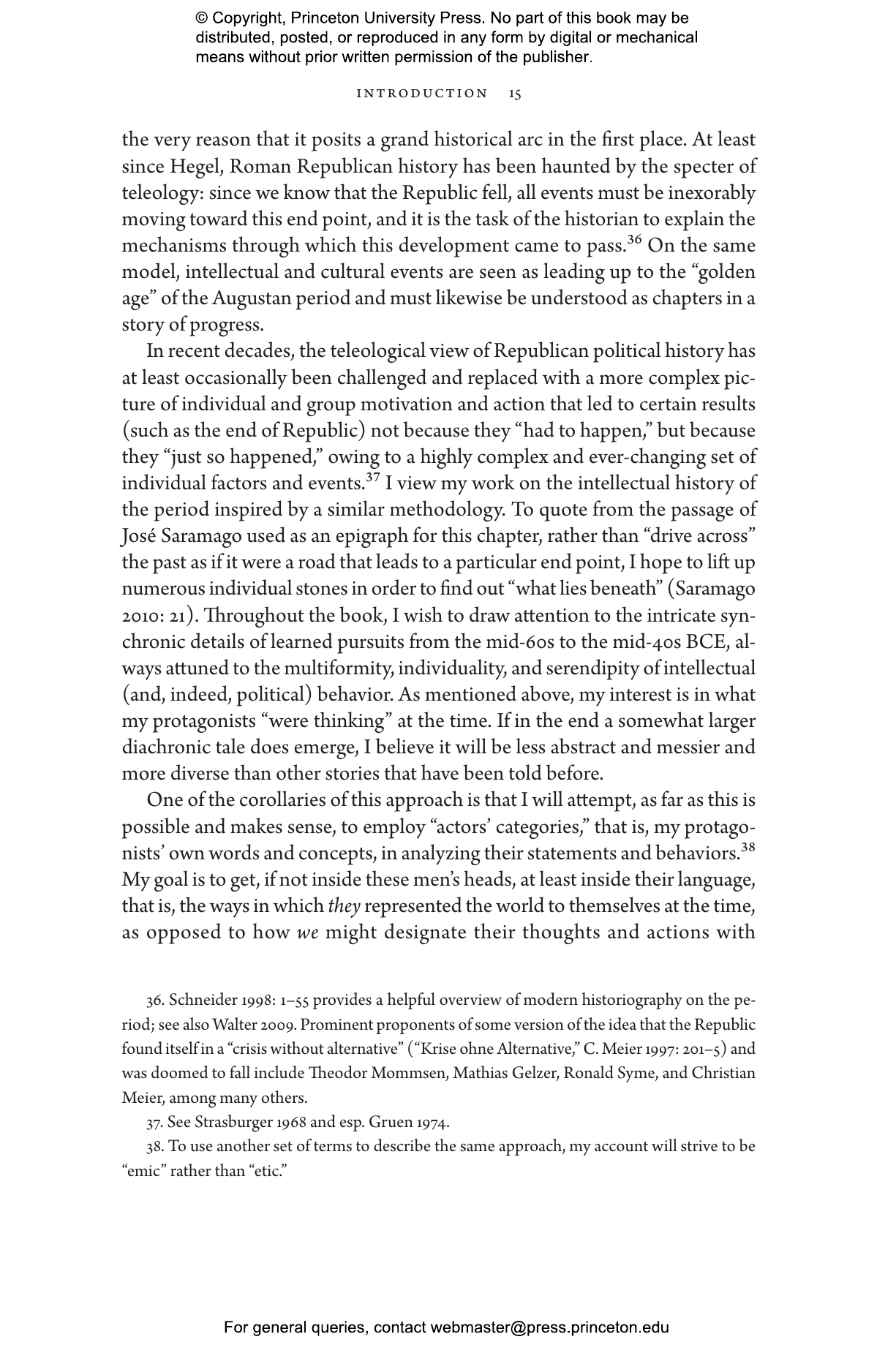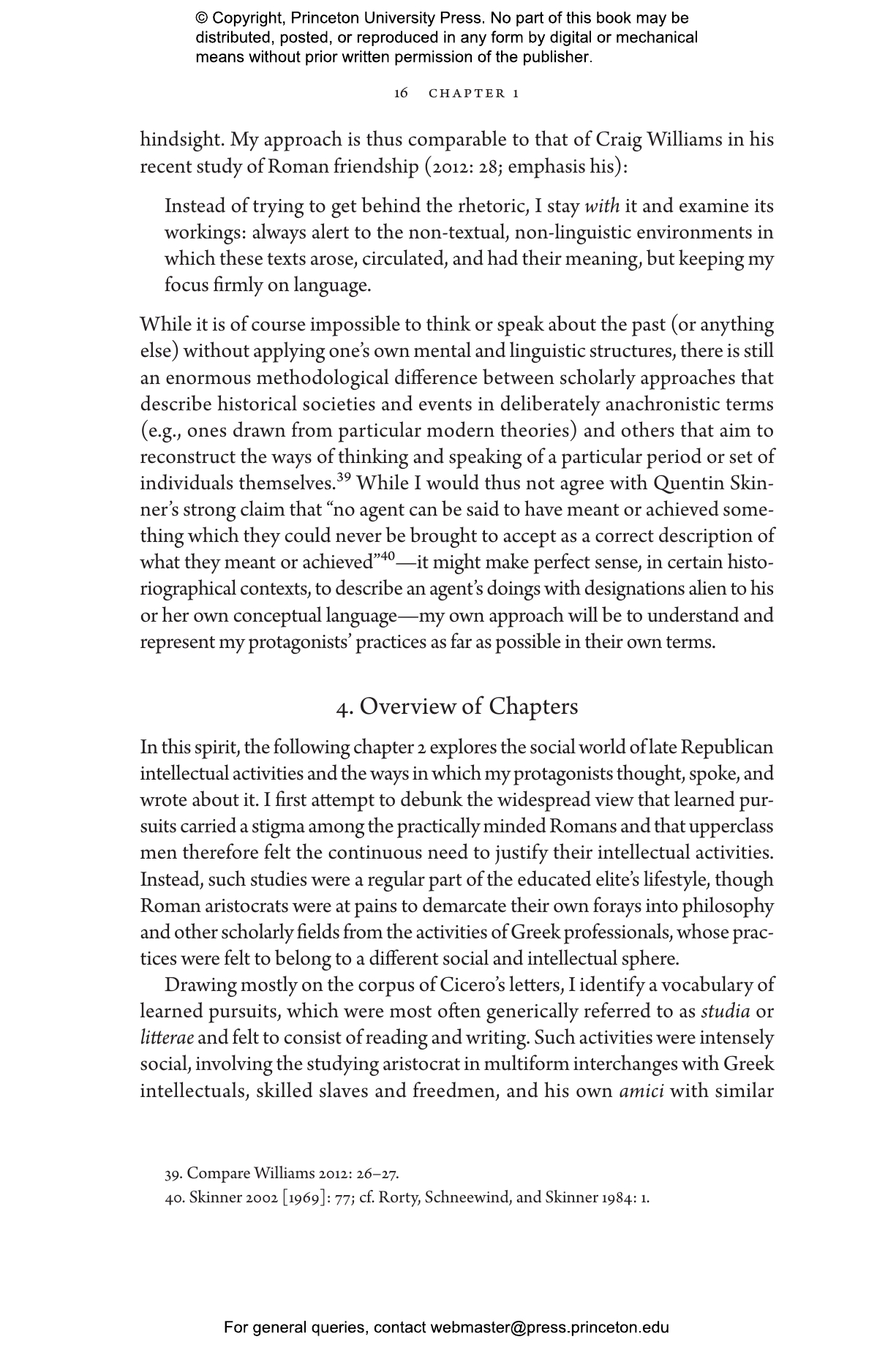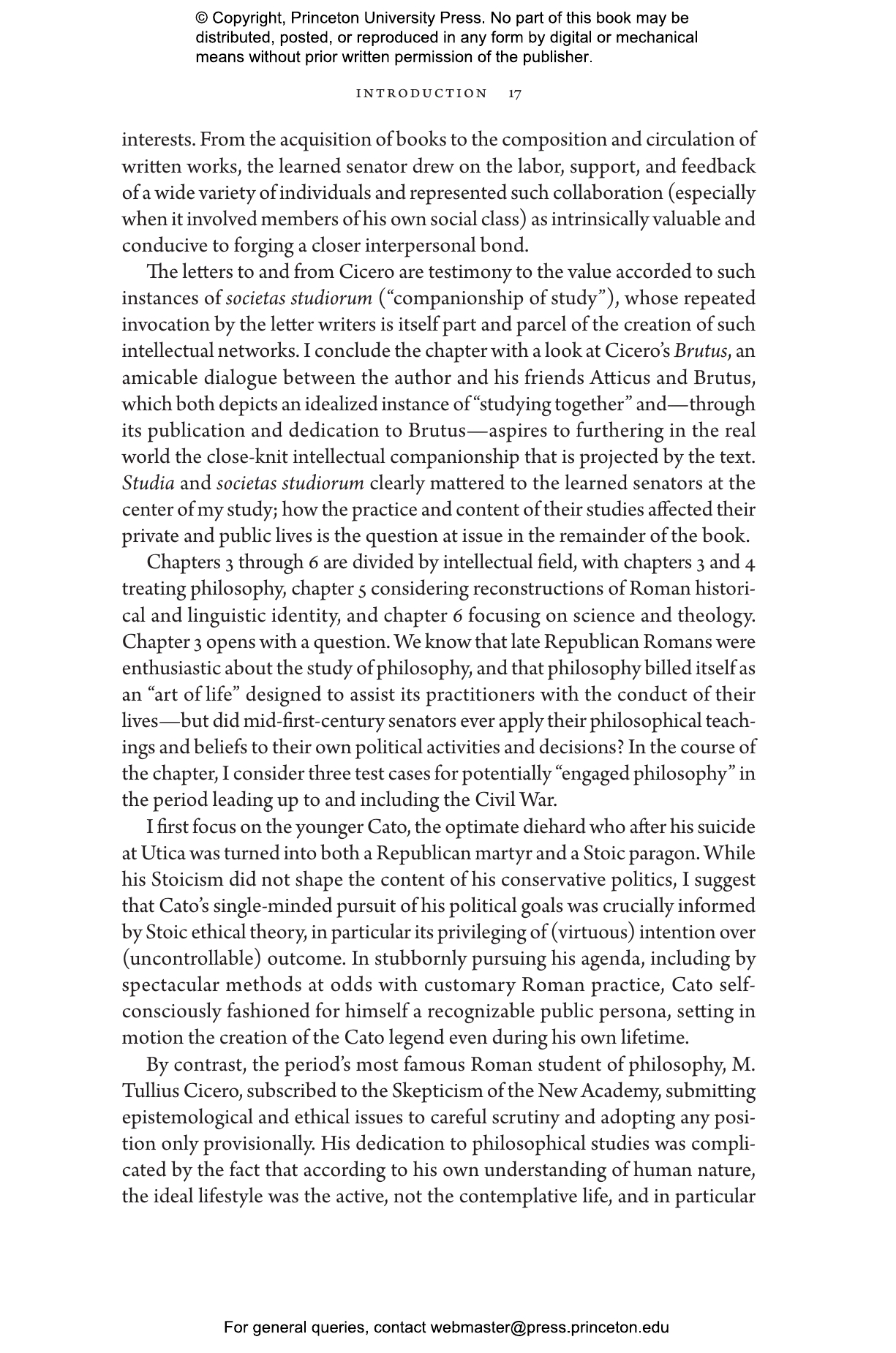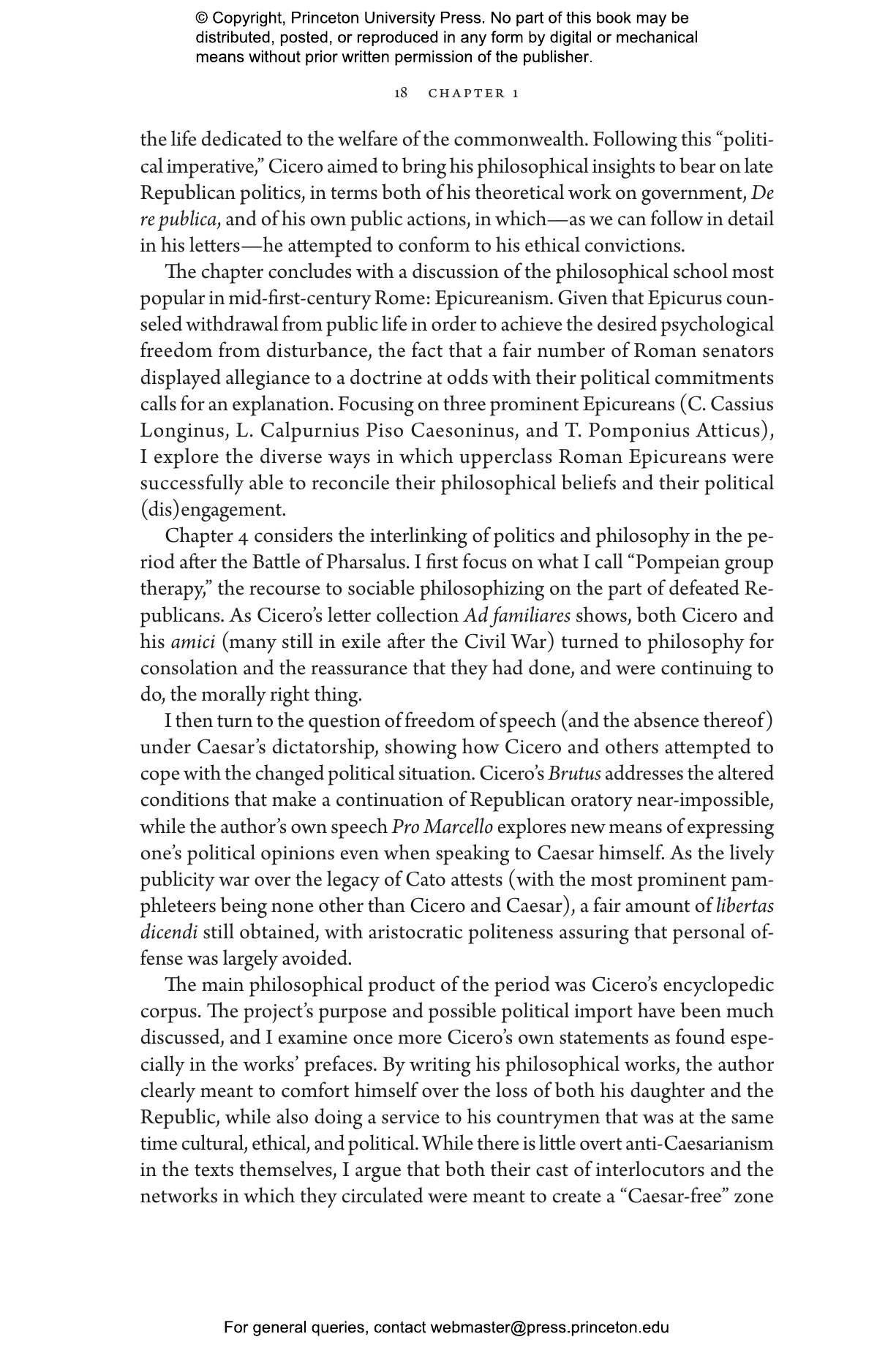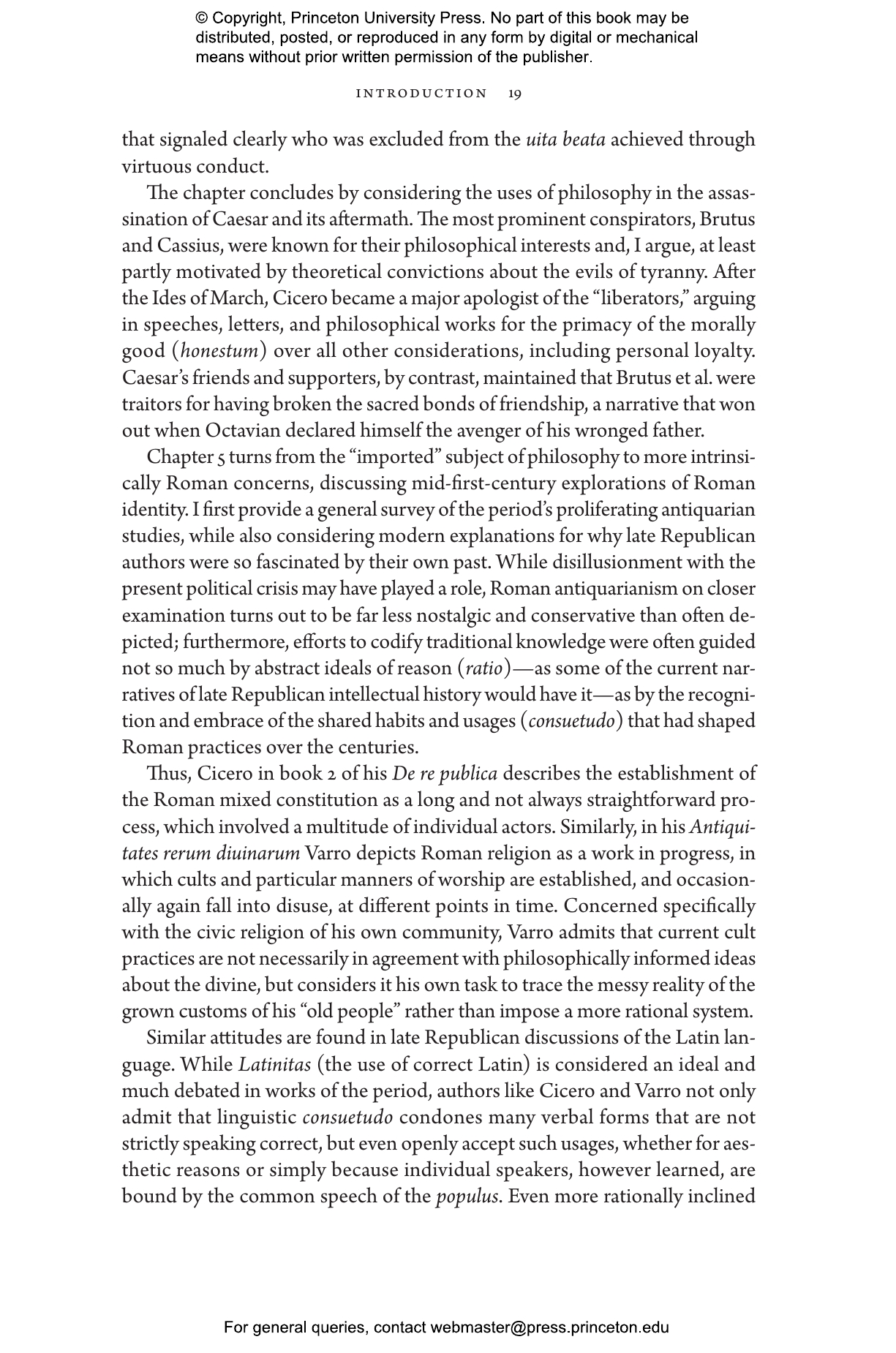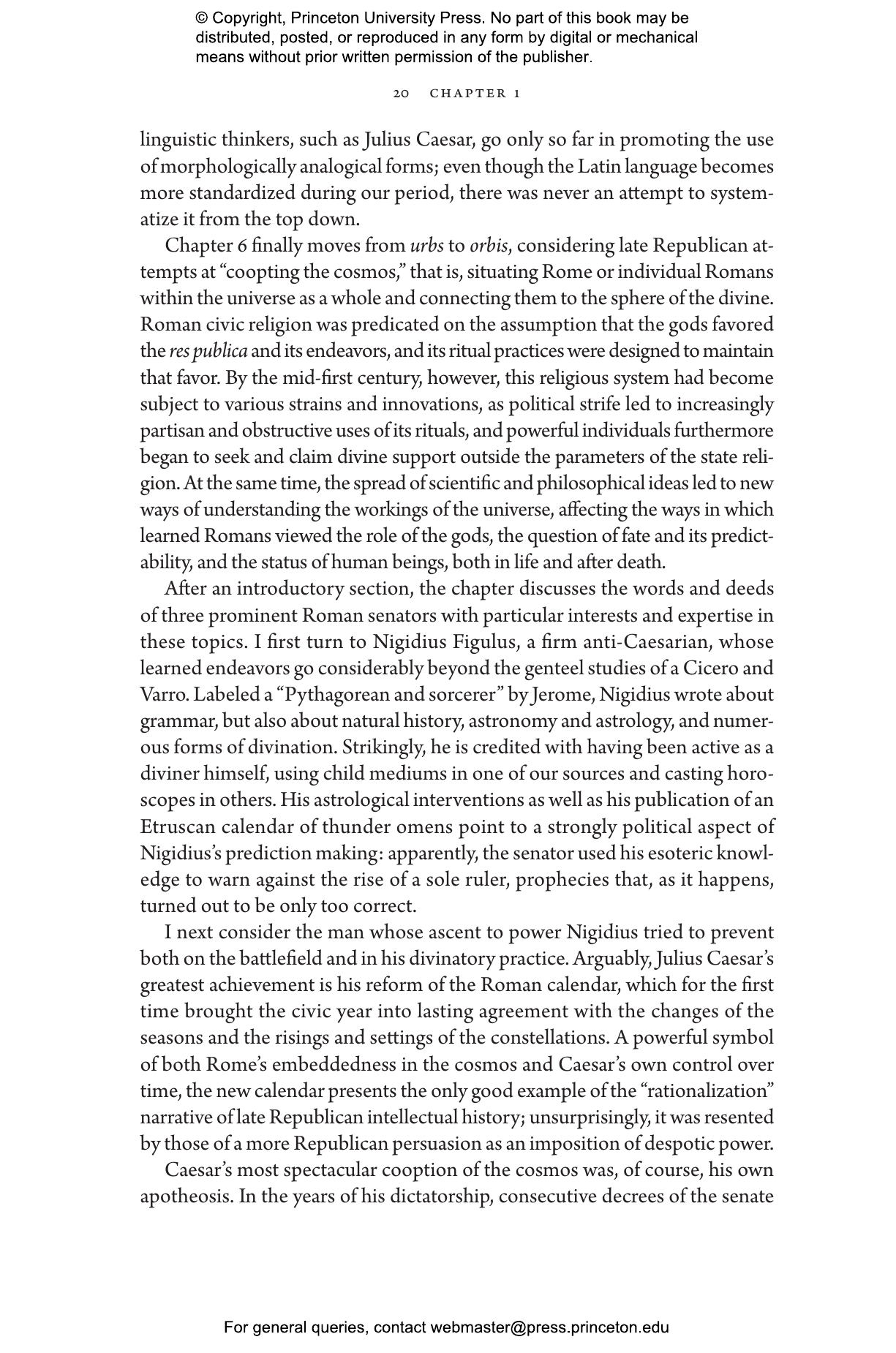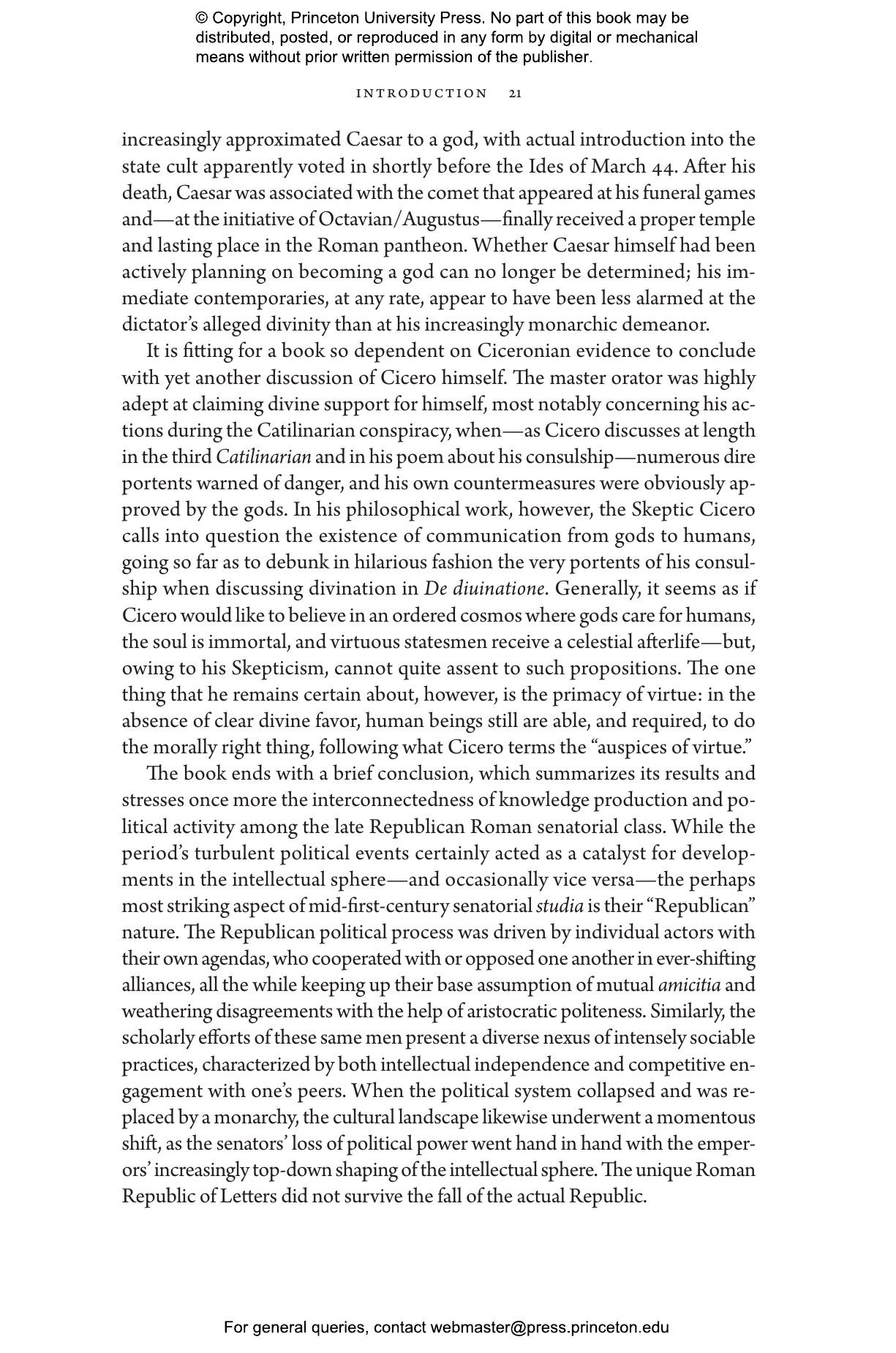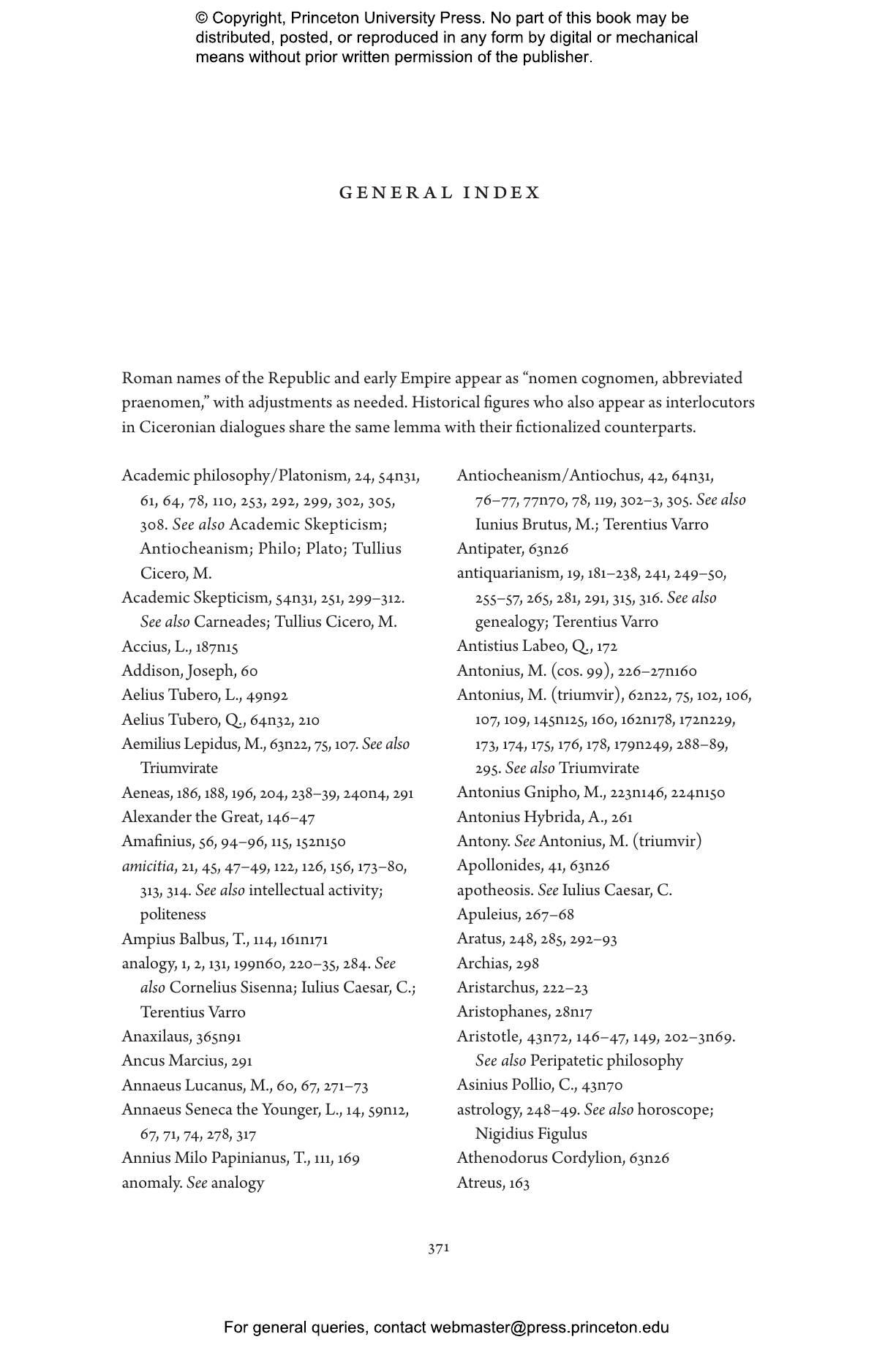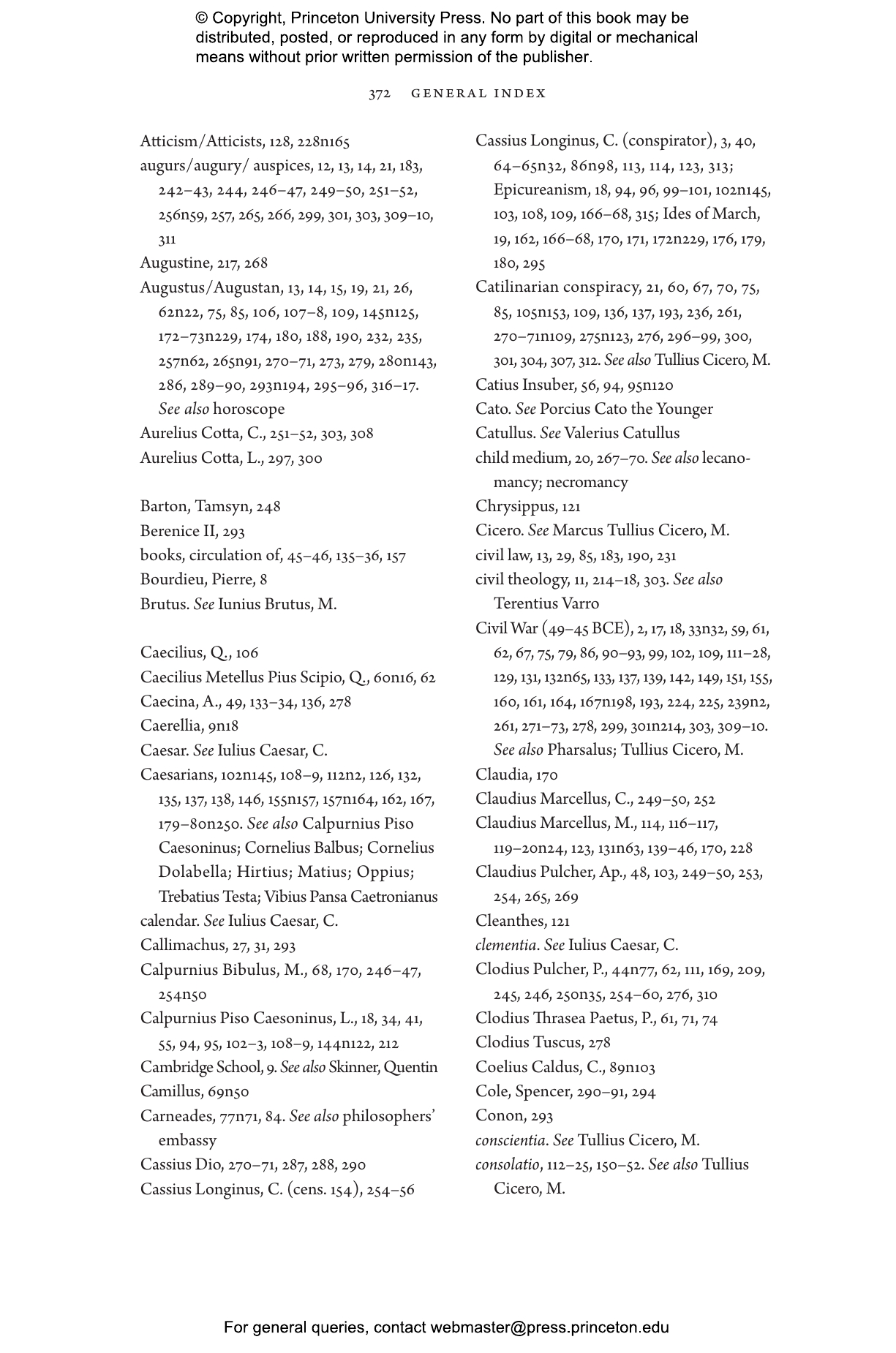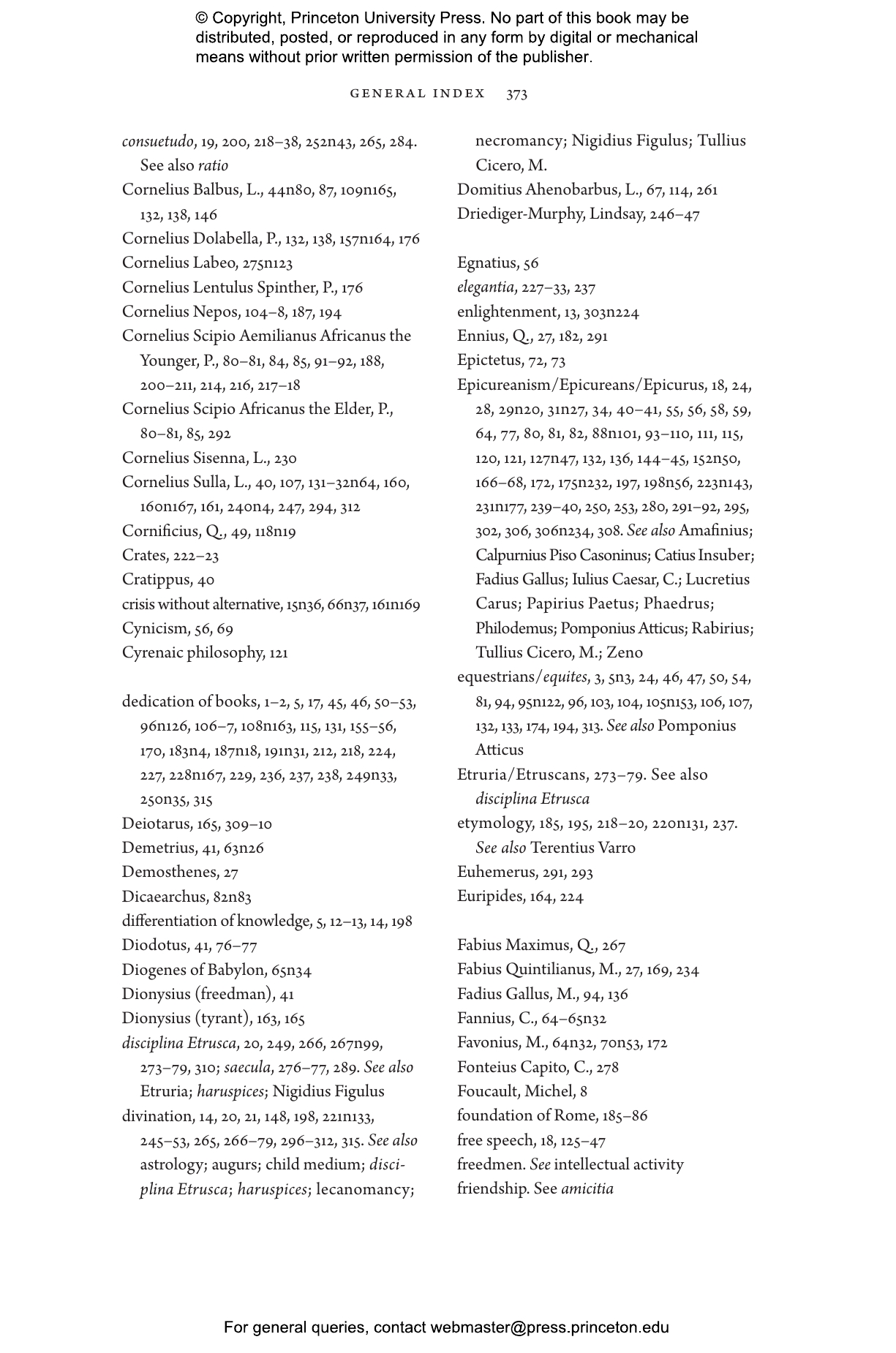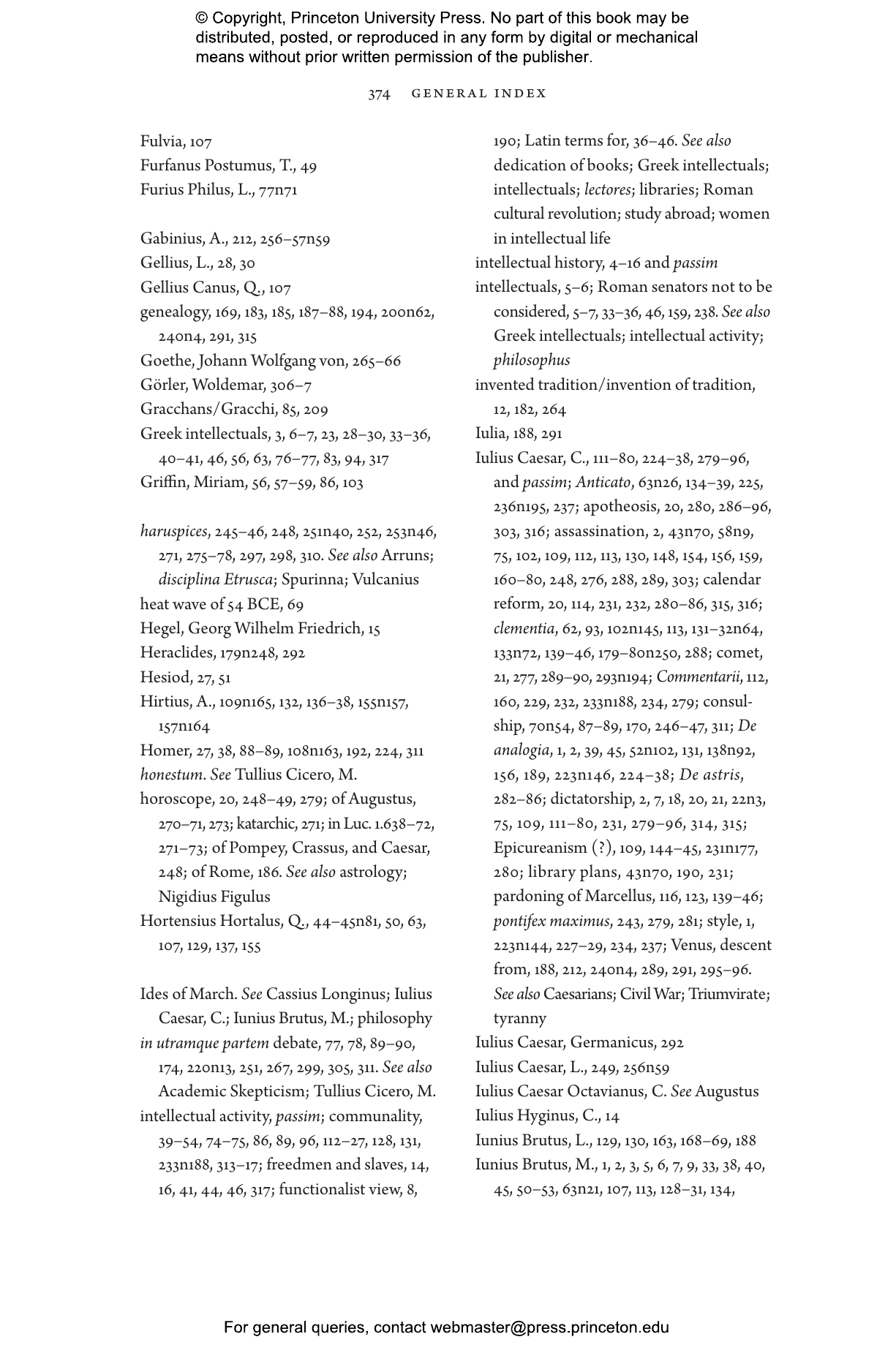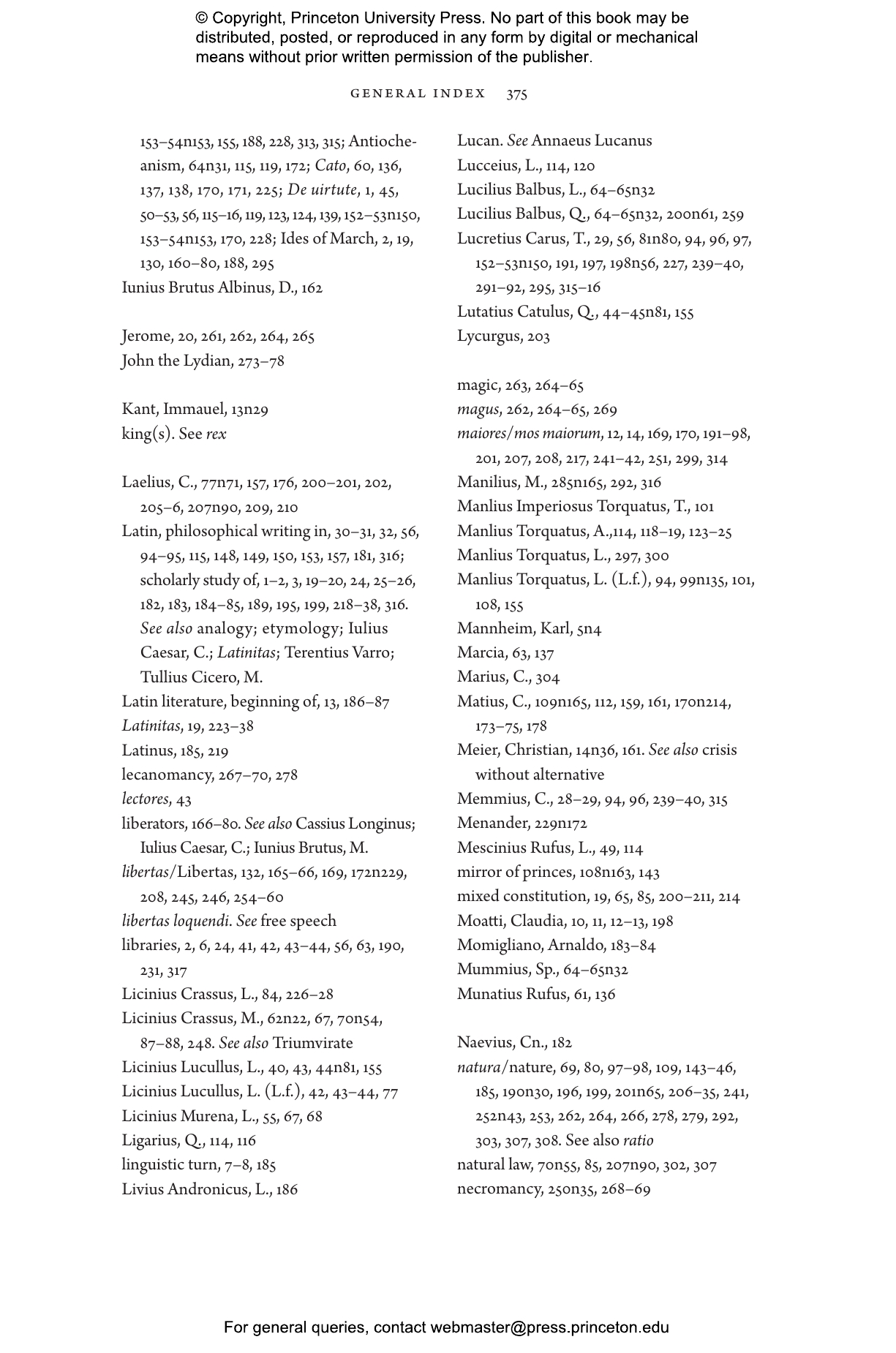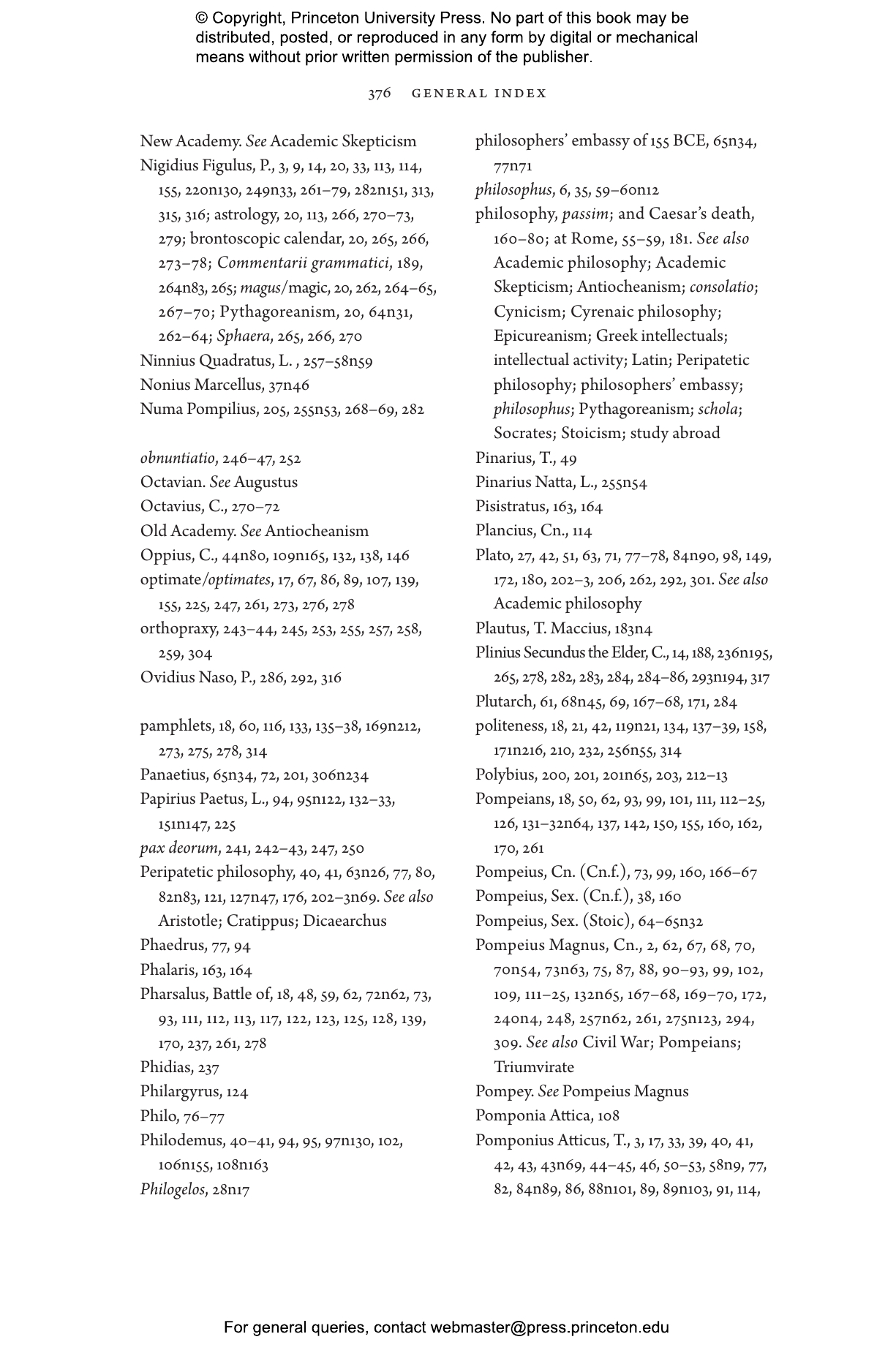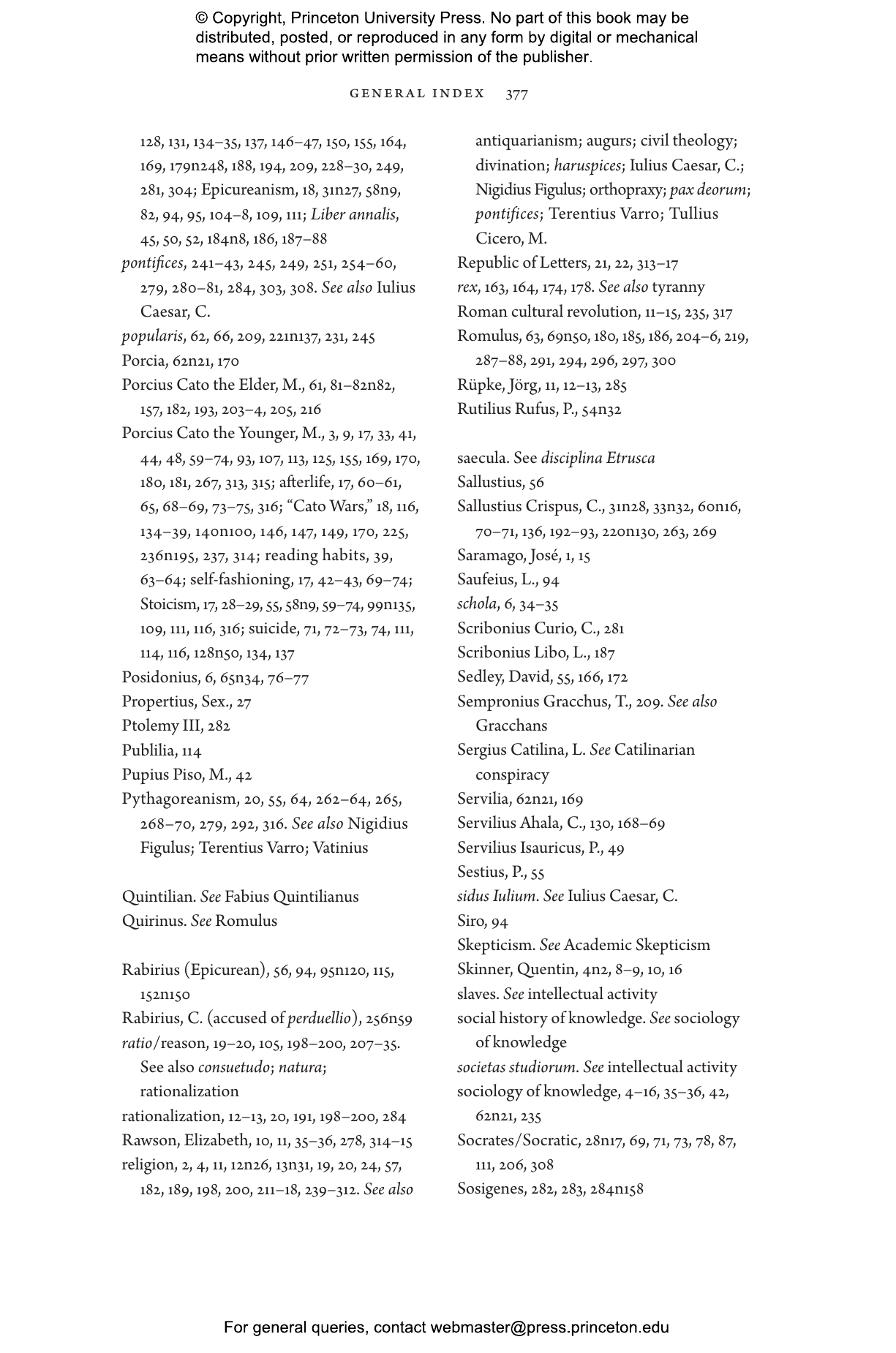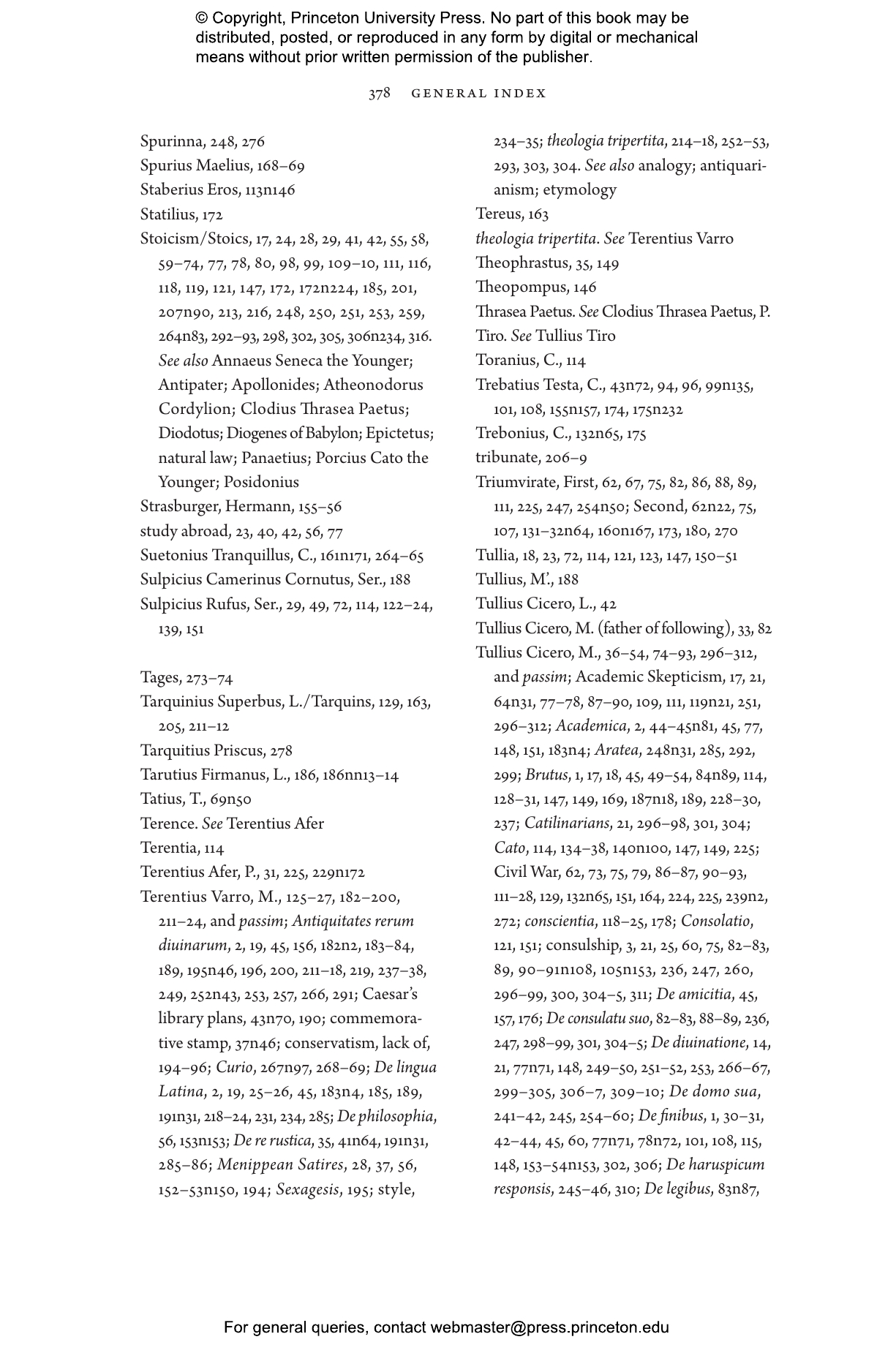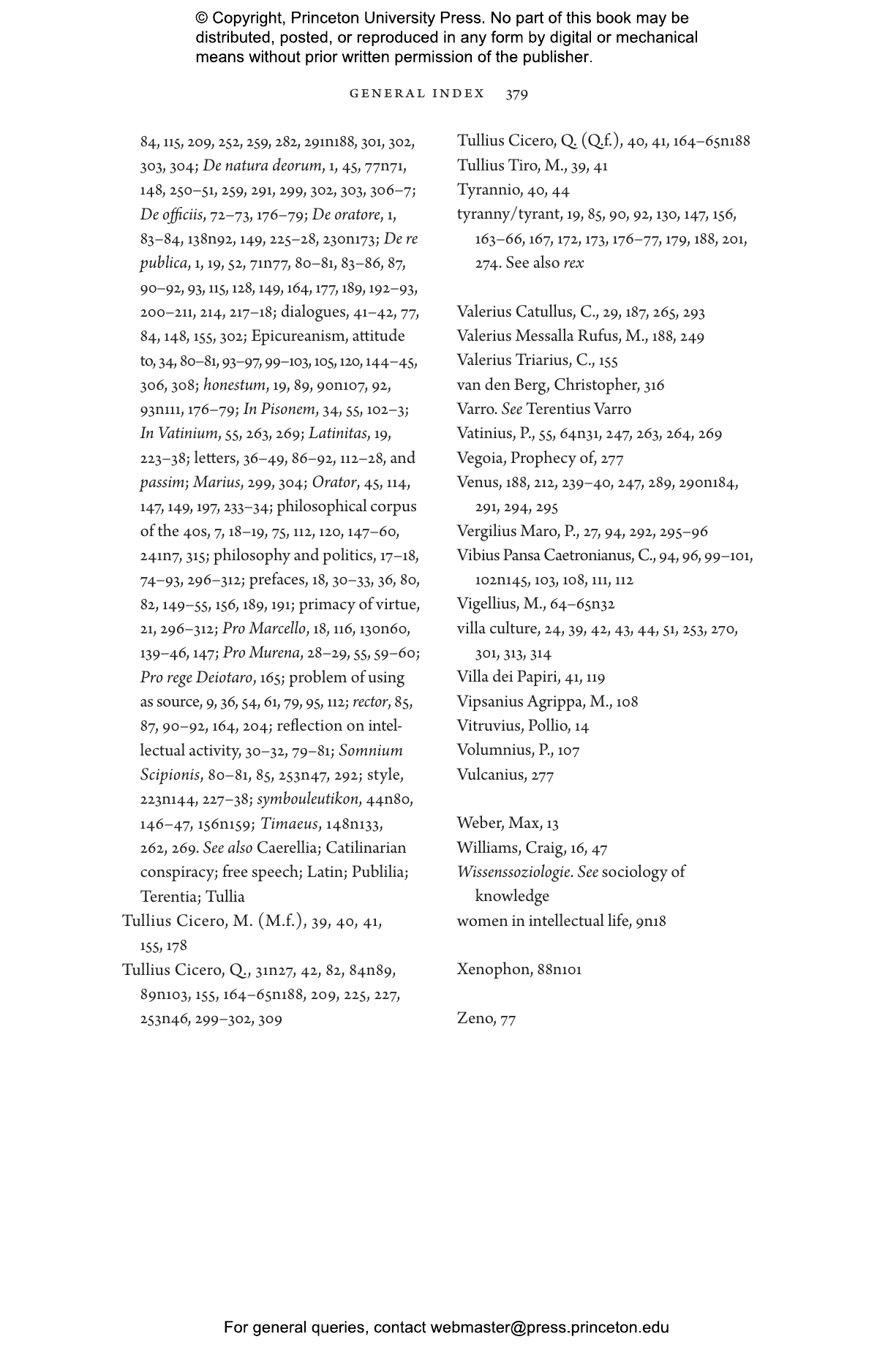In The Roman Republic of Letters, Katharina Volk explores a fascinating chapter of intellectual history, focusing on the literary senators of the mid-first century BCE who came to blows over the future of Rome even as they debated philosophy, history, political theory, linguistics, science, and religion.
It was a period of intense cultural flourishing and extreme political unrest—and the agents of each were very often the same people. Members of the senatorial class, including Cicero, Caesar, Brutus, Cassius, Cato, Varro, and Nigidius Figulus, contributed greatly to the development of Roman scholarship and engaged in a lively and often polemical exchange with one another. These men were also crucially involved in the tumultuous events that brought about the collapse of the Republic, and they ended up on opposite sides in the civil war between Caesar and Pompey in the early 40s. Volk treats the intellectual and political activities of these “senator scholars” as two sides of the same coin, exploring how scholarship and statesmanship mutually informed one another—and how the acquisition, organization, and diffusion of knowledge was bound up with the question of what it meant to be a Roman in a time of crisis.
By revealing how first-century Rome’s remarkable “republic of letters” was connected to the fight over the actual res publica, Volk’s riveting account captures the complexity of this pivotal period.
Awards and Recognition
- Winner of the Charles J. Goodwin Award of Merit, Society for Classical Studies
Katharina Volk is professor of classics at Columbia University. She is the author of Ovid; Manilius and His Intellectual Background; and The Poetics of Latin Didactic: Lucretius, Vergil, Ovid, Manilius.
"Volk’s argument – that the story of the Roman republic of letters is messier and more variable than it has generally been presented – is a compelling one."—Nora Goldschmidt, London Review of Books
"Fascinating. . . . An engrossing guide to an epoch-making decade of western history. The Roman Republic of Letters is an important intervention, and it deserves to be debated widely."—Michael Fontaine, New Criterion
"An excellent history of late Republican intellectual life that surveys a wide range of Latin prose literature. . . . Volk deeply scrutinizes her subjects in a way that is sensitive to prior studies yet free from their strictures. Her own scholarship tells lively stories, which are not digressive but structured around clear arguments. The result is a book that may be enjoyed by specialists and general readers alike.—Peter Osorio, Bryn Mawr Classical Review"
"Volk’s lucid prose handles much-debated issues with admirable clarity and balance. . . . [Her] unapologetic passion for Latin language and literature is refreshing, and so is her ability to portray the protagonists of the intellectual revival of the end of the republic as human beings embedded and invested in a specific cultural and historical milieu.—Luca Grillo, Classical Association of Canada"
“The Roman Republic of Letters aims to make sense of the extraordinary flourishing of intellectual activity during the final decades of the Roman Republic by situating this activity within the period’s political uncertainty. As Katharina Volk notes, with few exceptions the chief intellectual and literary figures of the period are also those most deeply enmeshed in political events. Her engaging narrative considers not just specific areas of scholarly and philosophical endeavor, but also the interaction among the various players.”—Anthony Corbeill, University of Virginia
“The Roman Republic of Letters offers an impressively broad-ranging and novel take on the many intellectual currents of the late Roman Republic. Rather than privilege one field of inquiry or debate (philosophy, grammar, rhetoric, religion), Katharina Volk magisterially elucidates the extent to which Roman elites coupled intellectual curiosity and civic tradition amidst the insurmountable political crisis of the Republic’s final years.”—Christopher van den Berg, Amherst College
